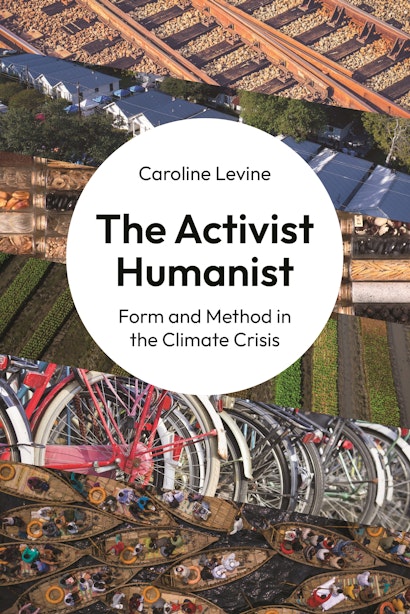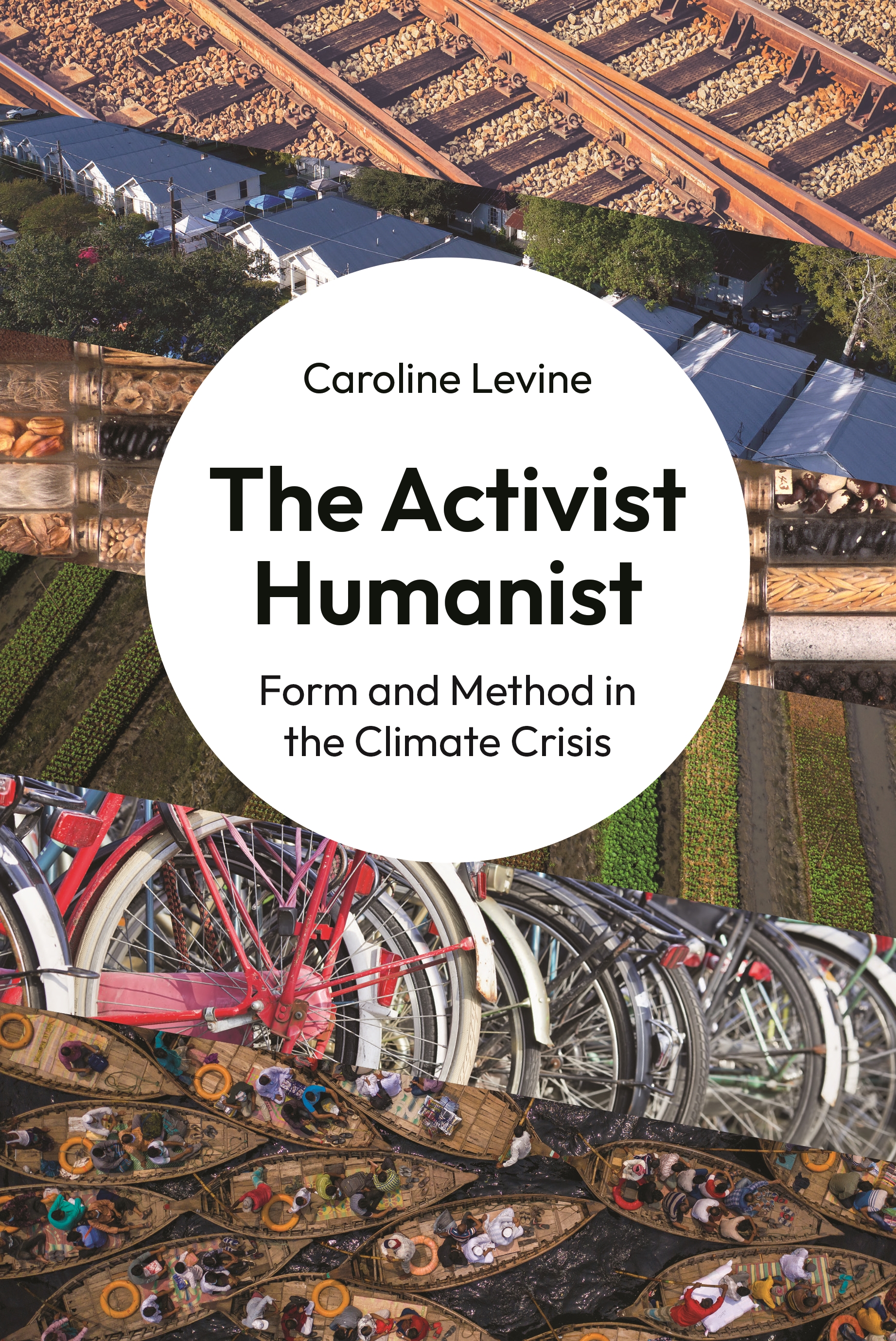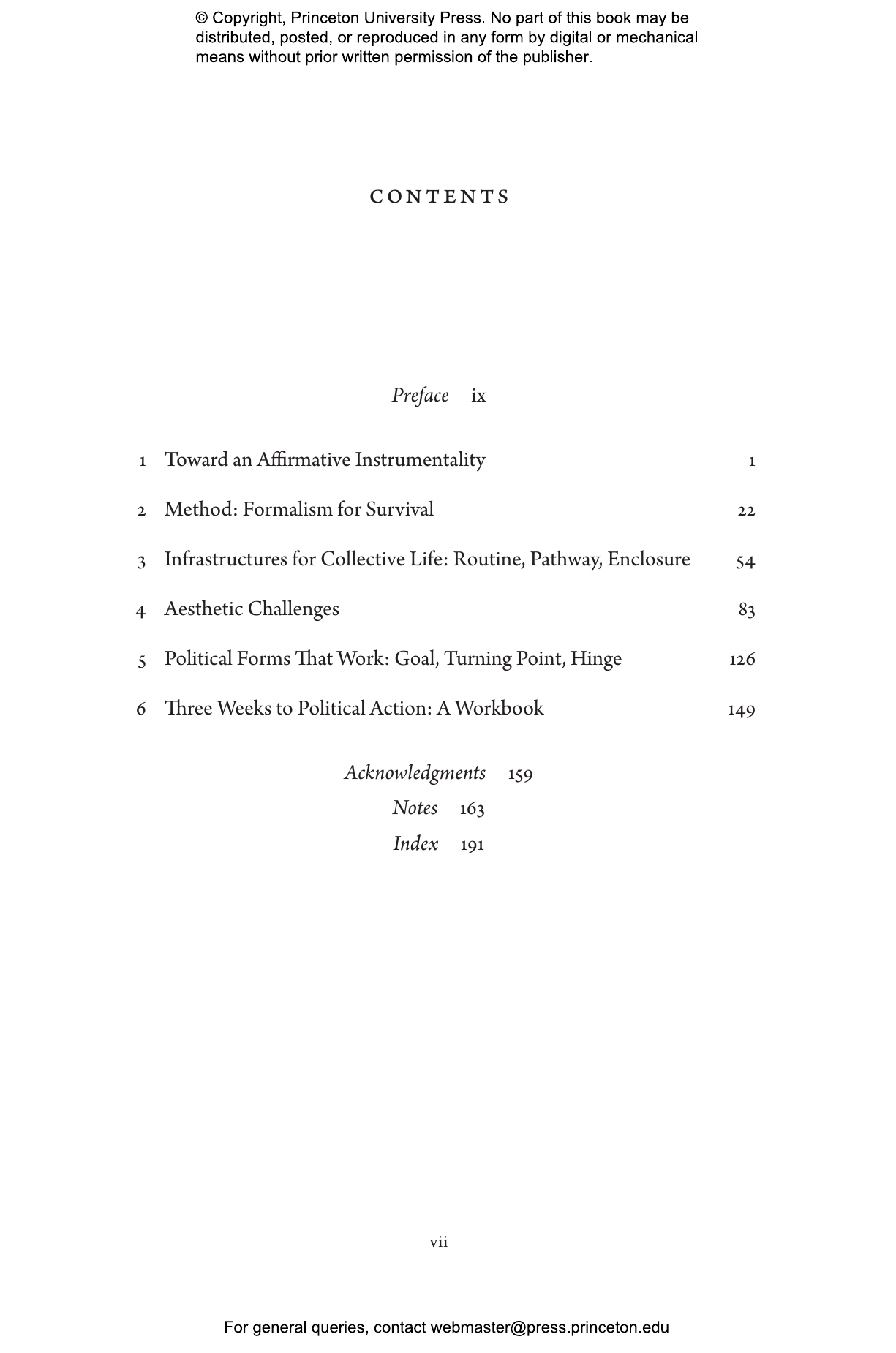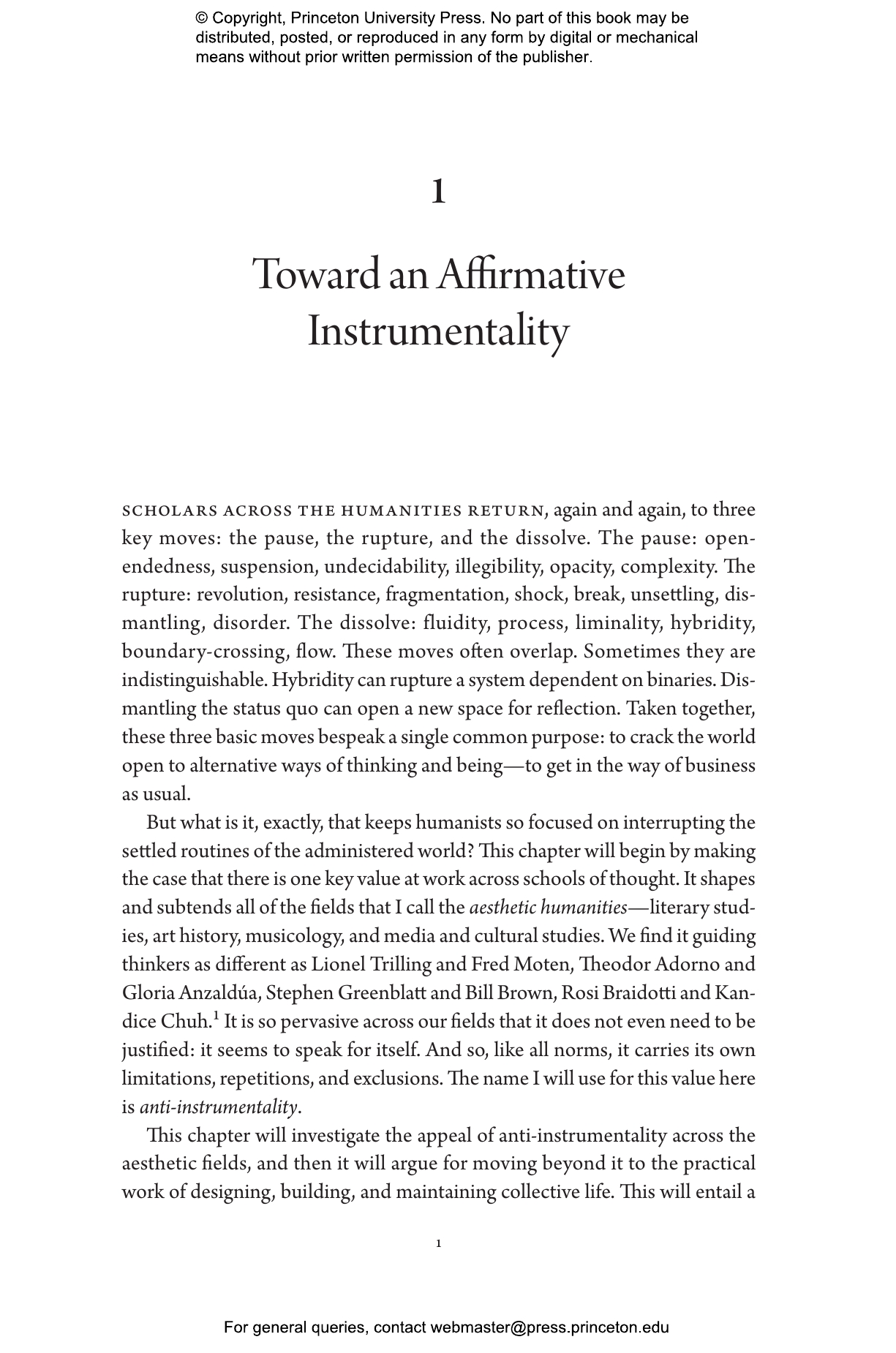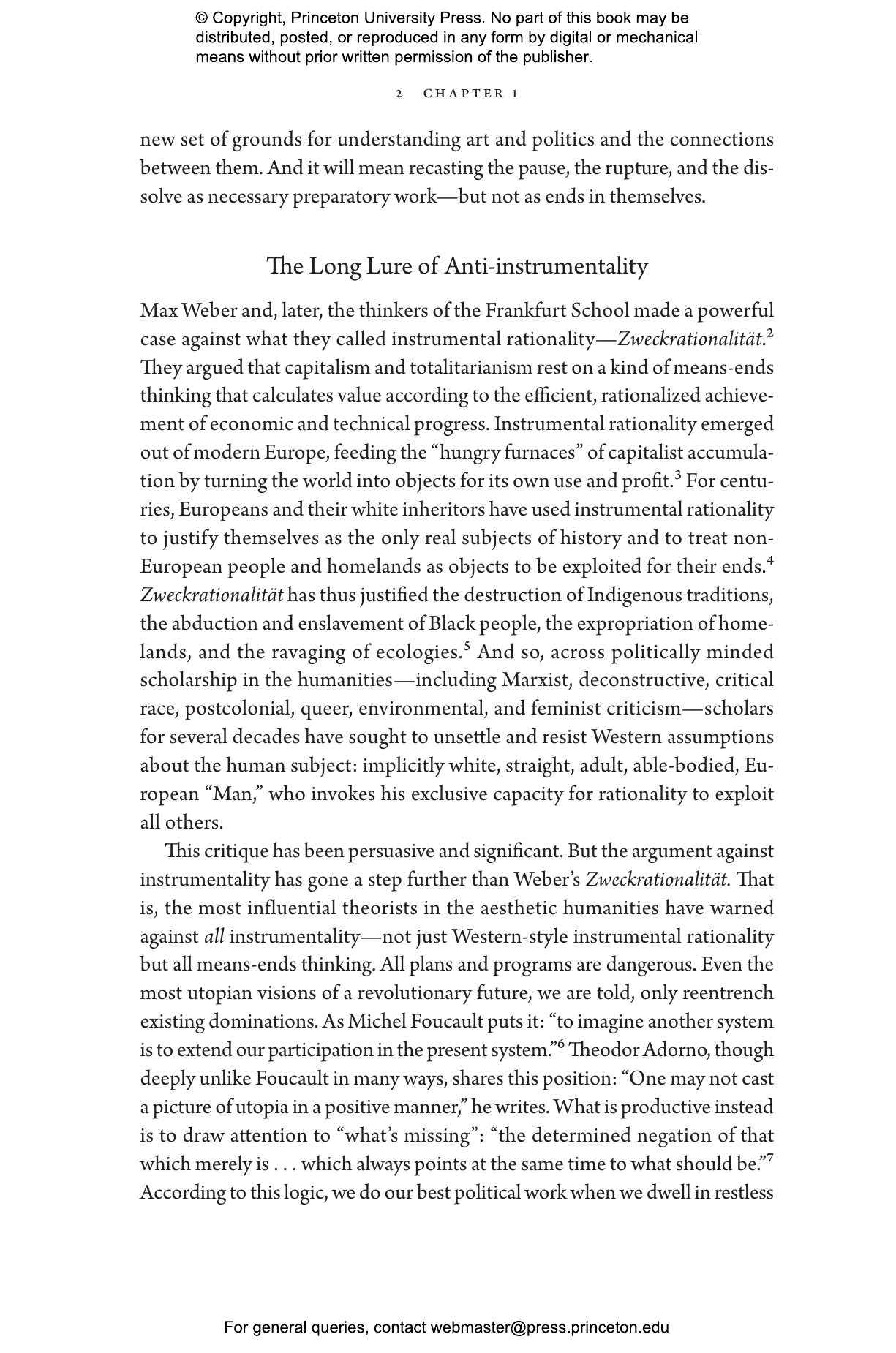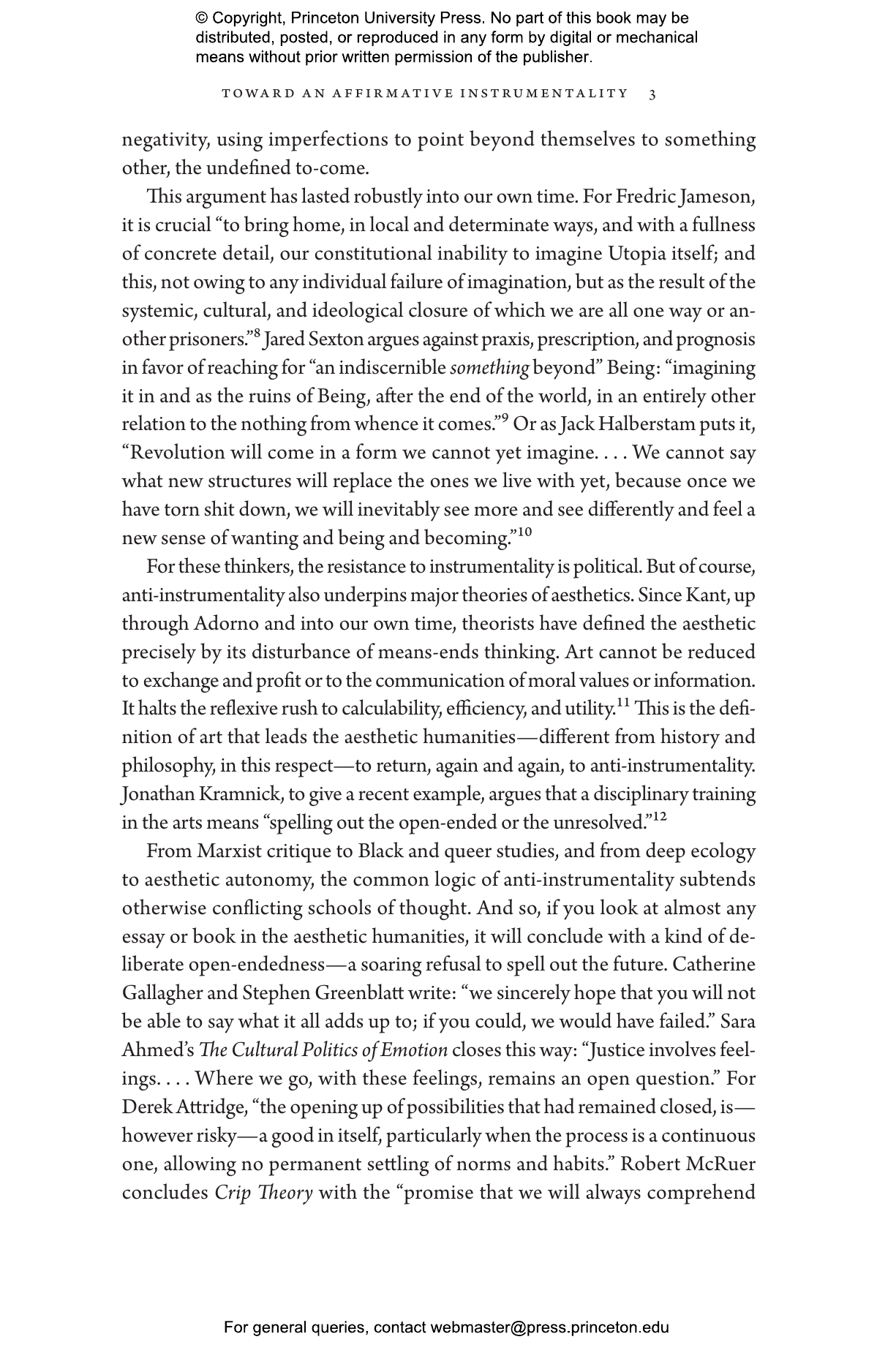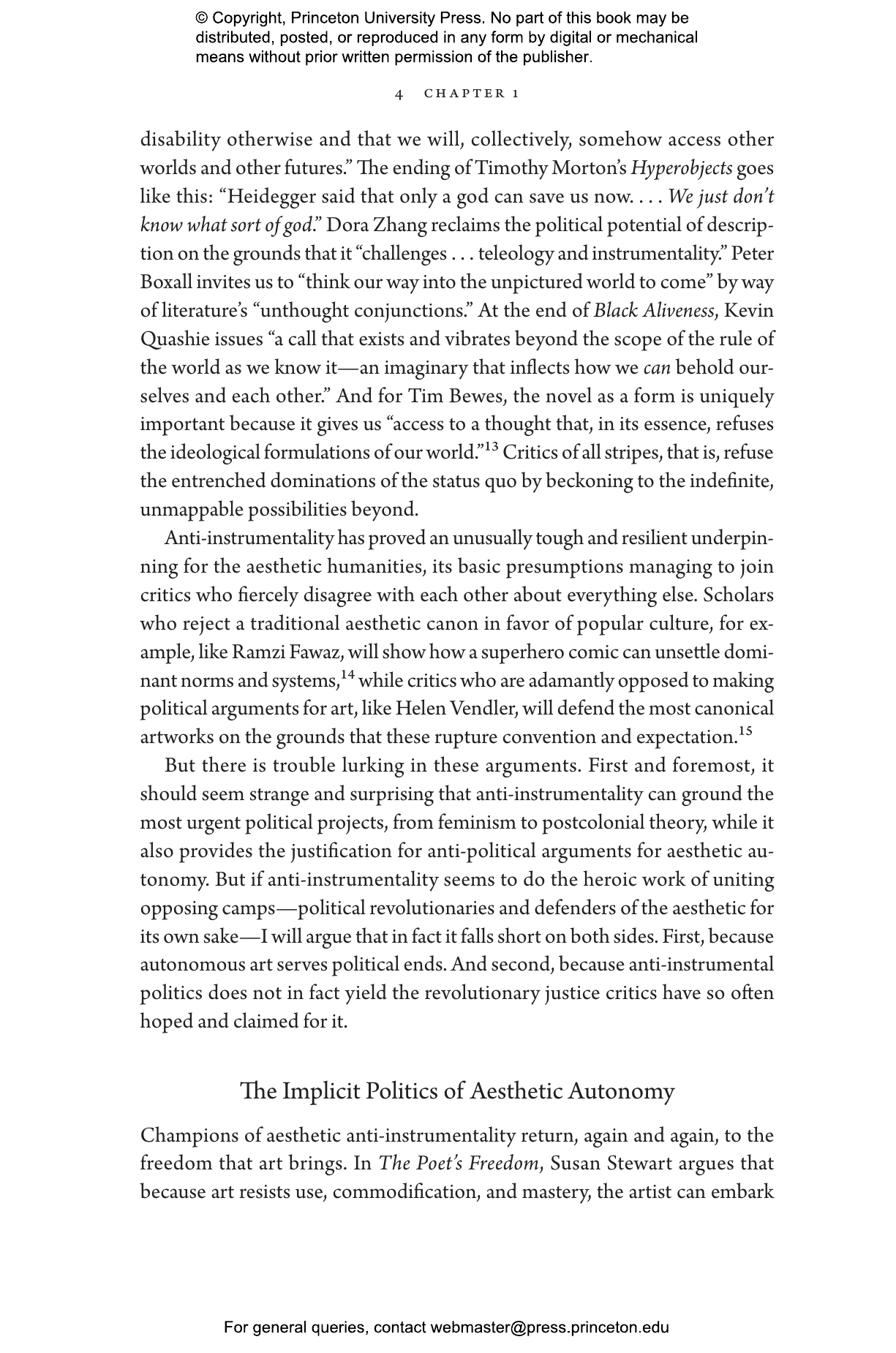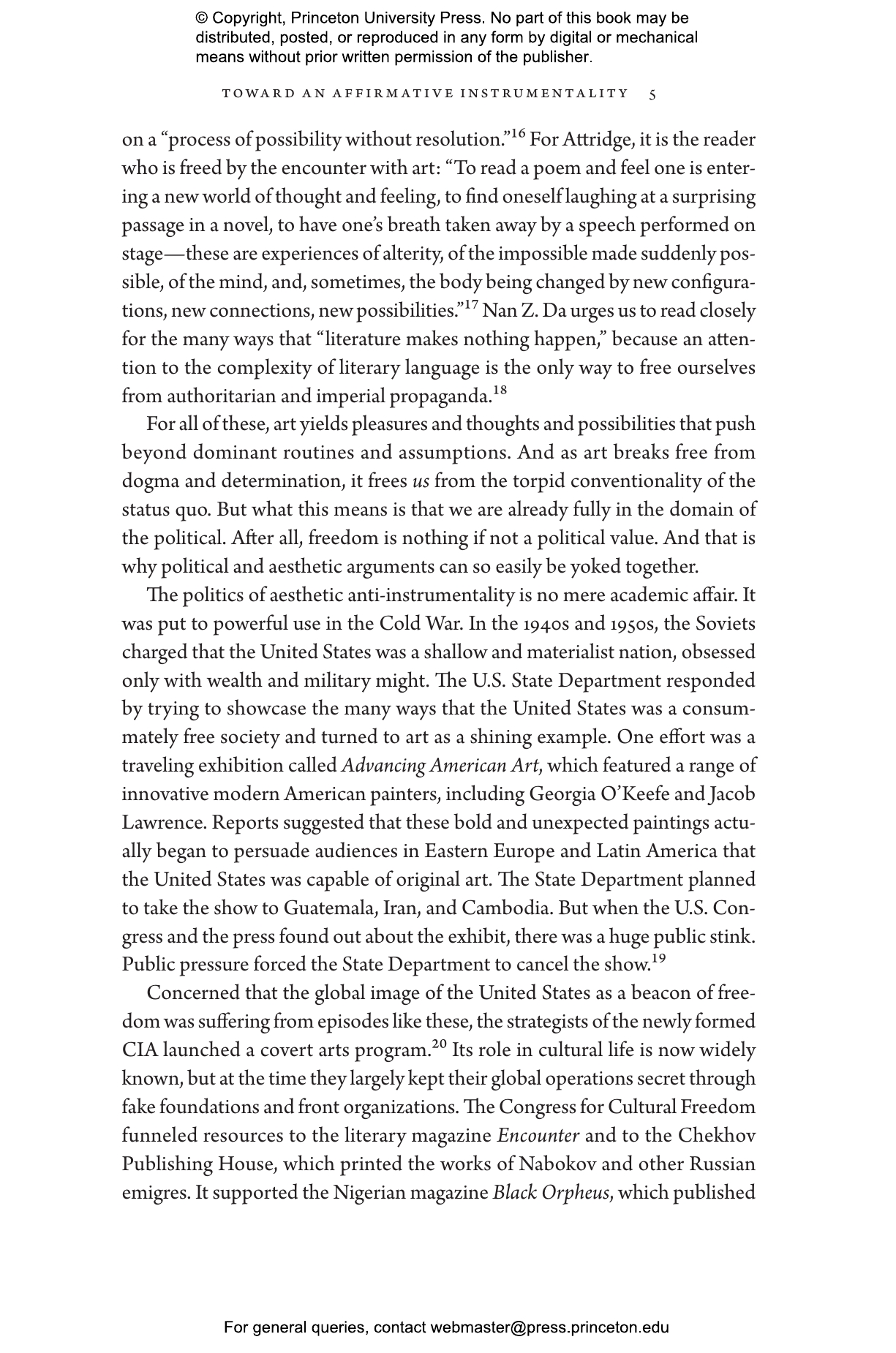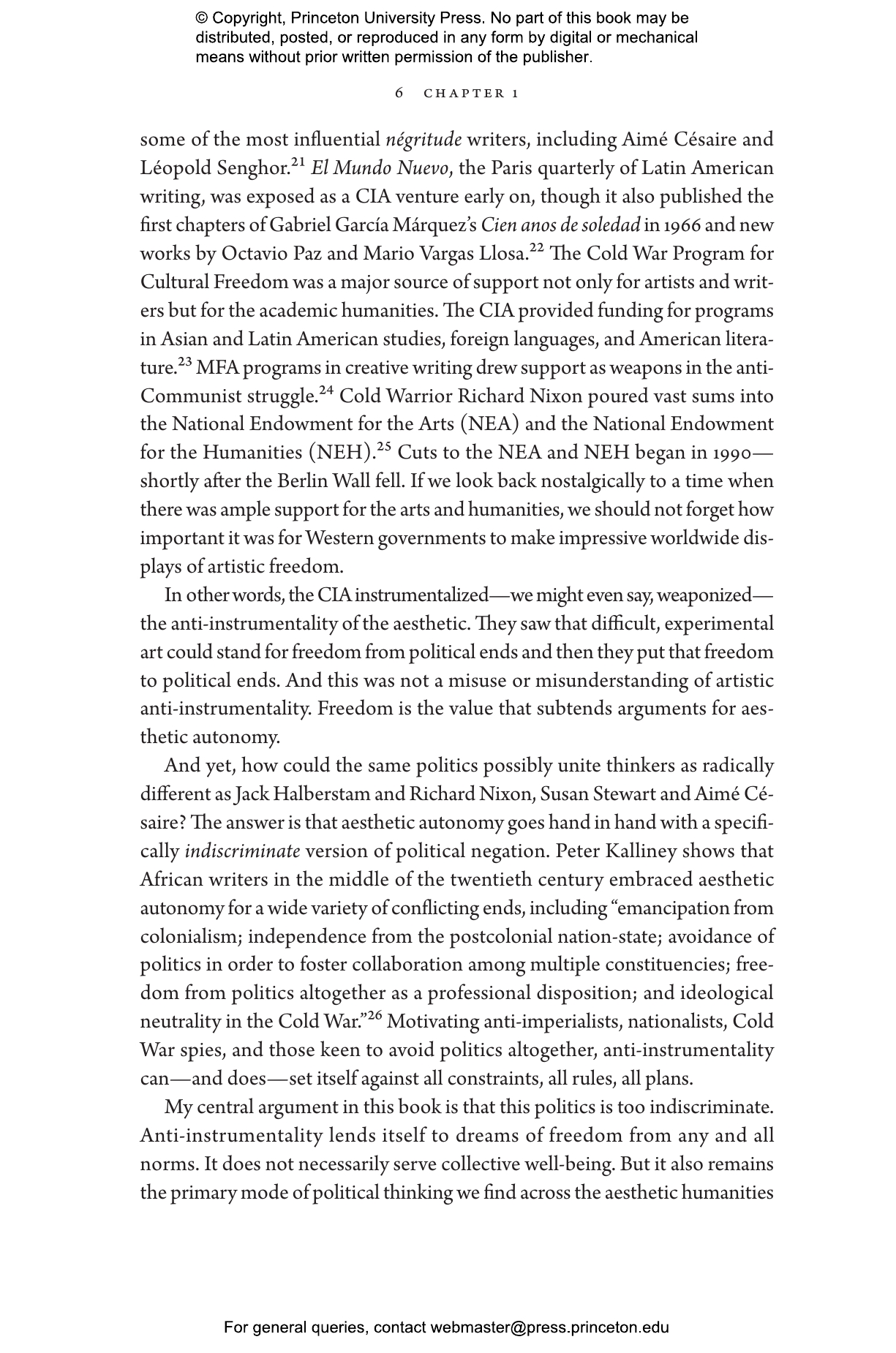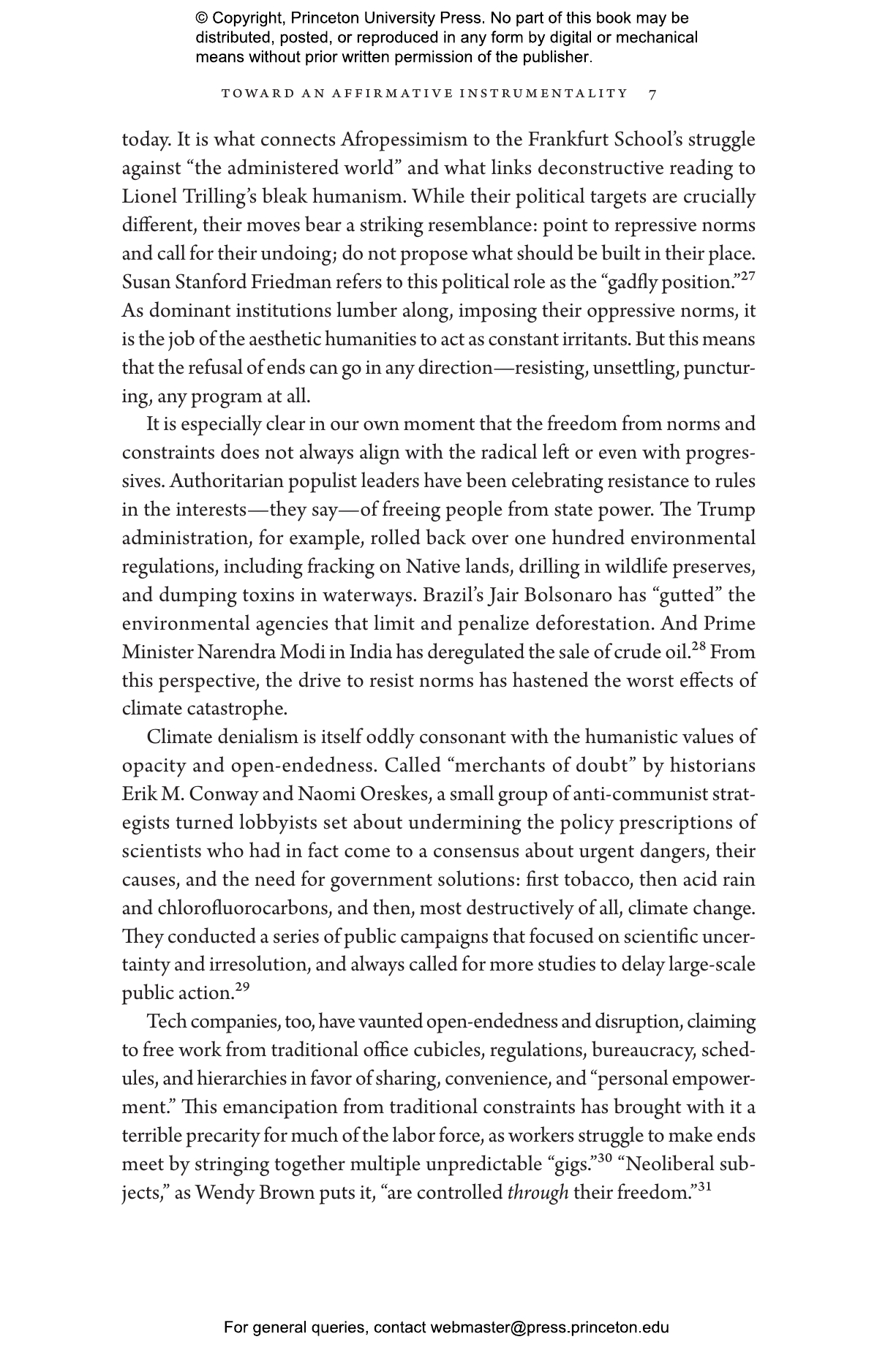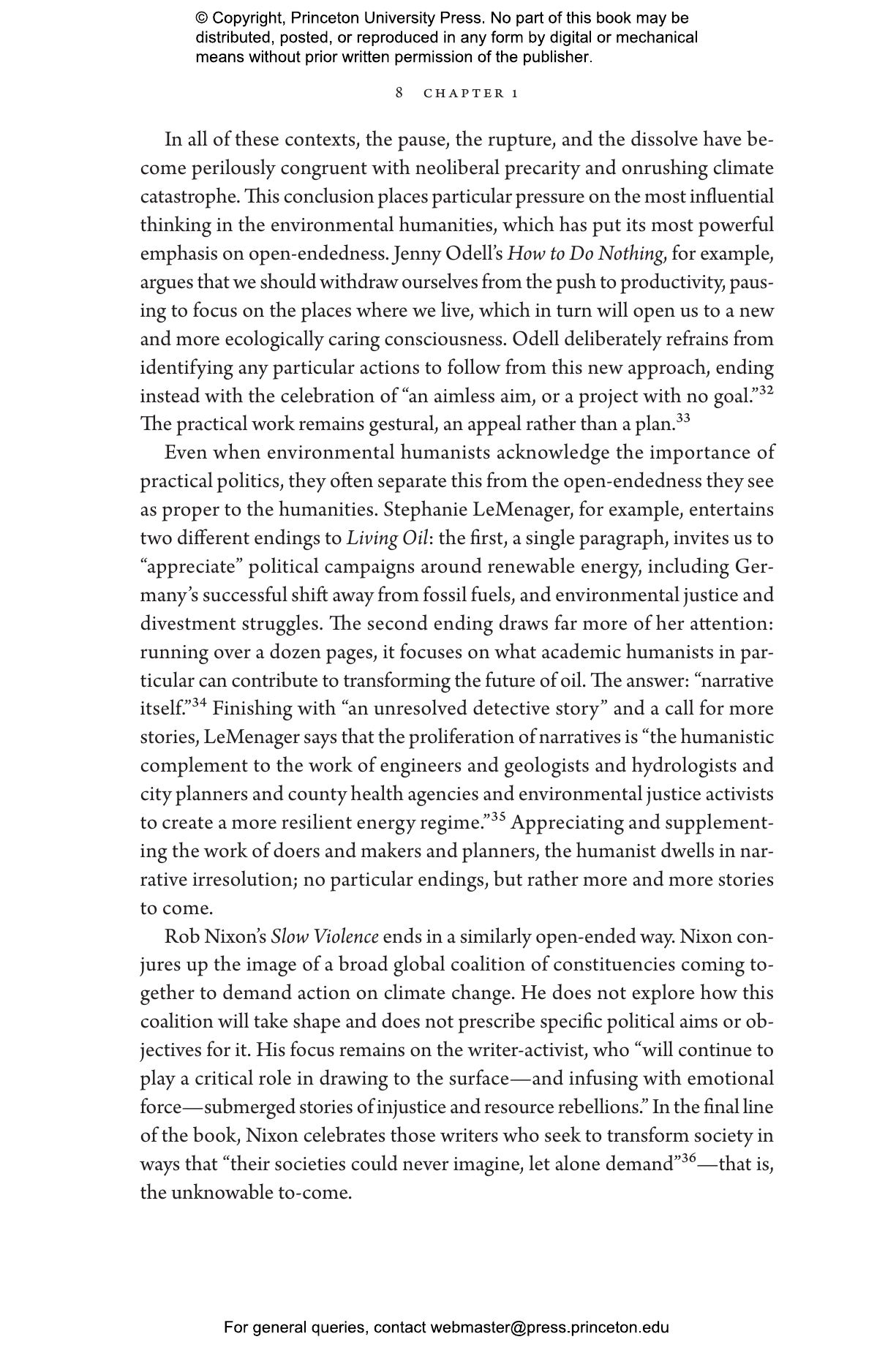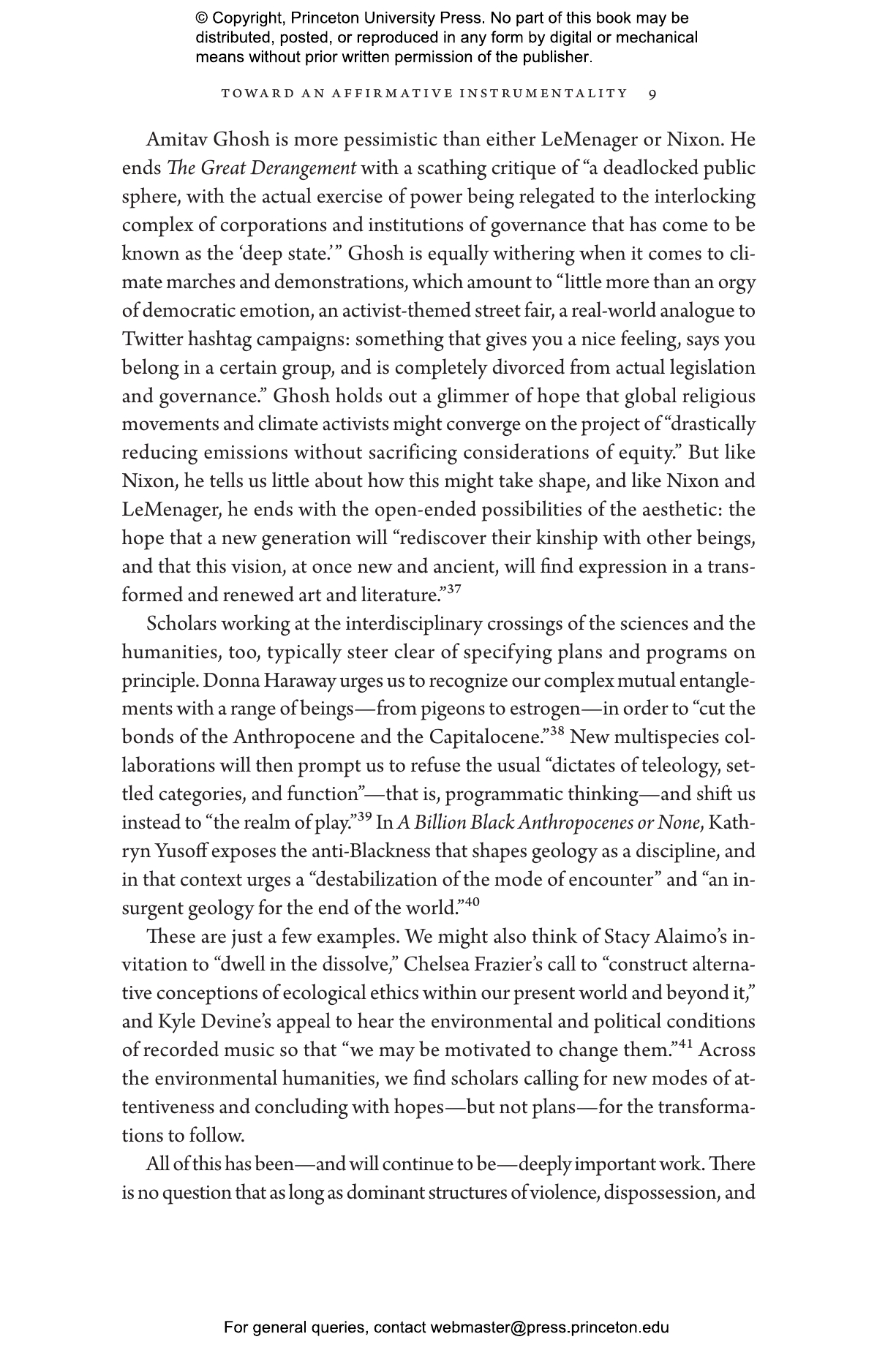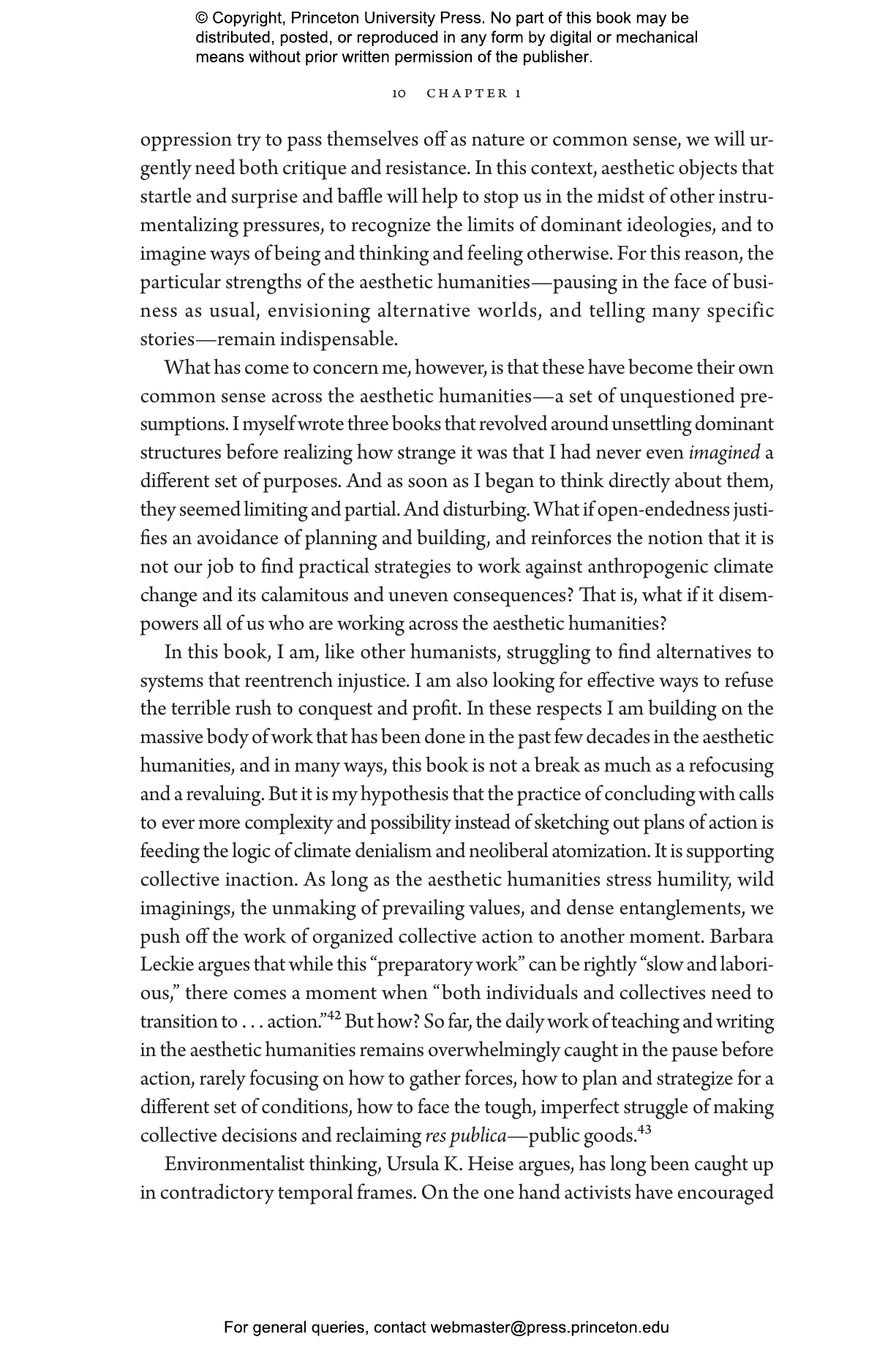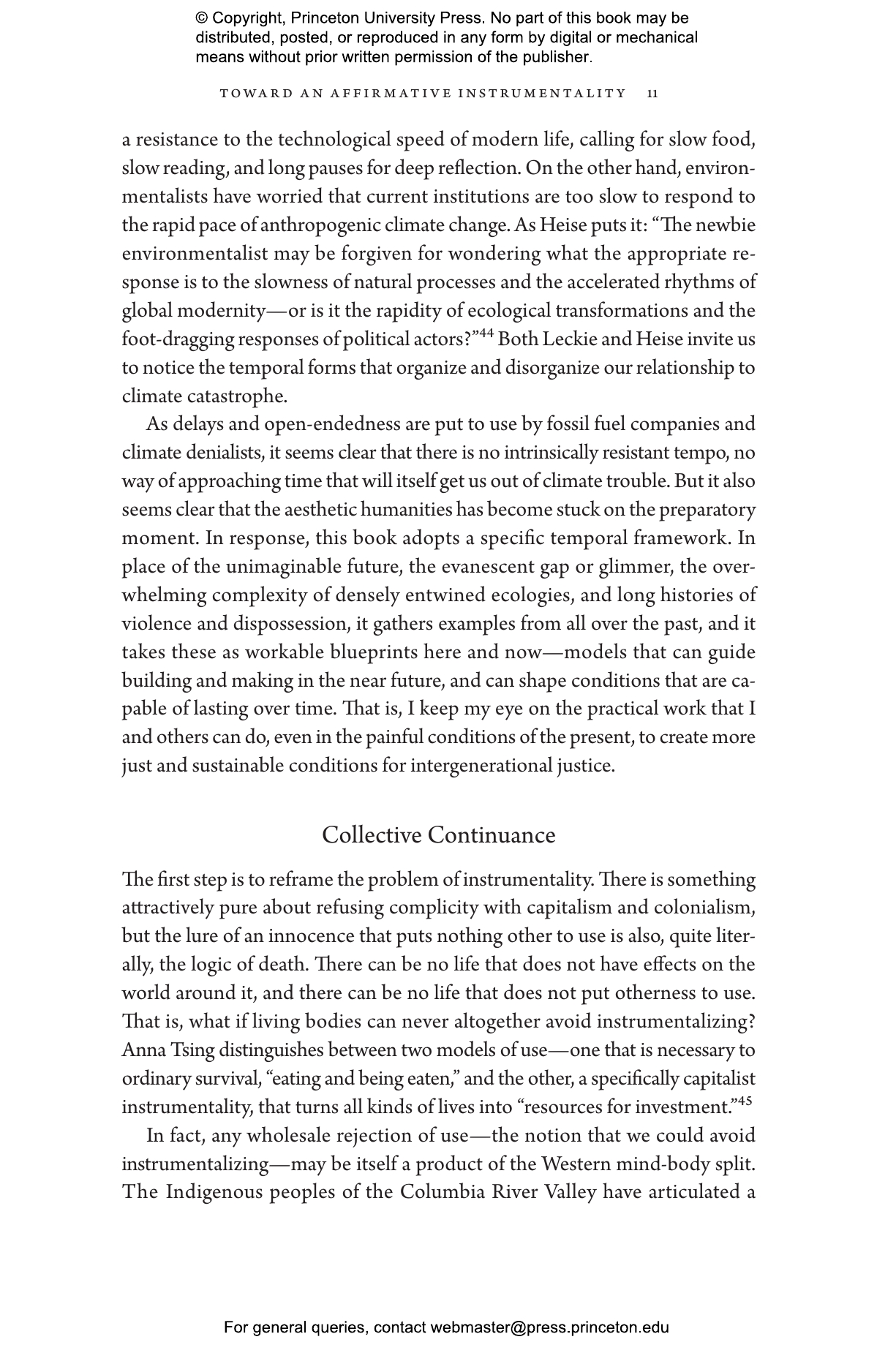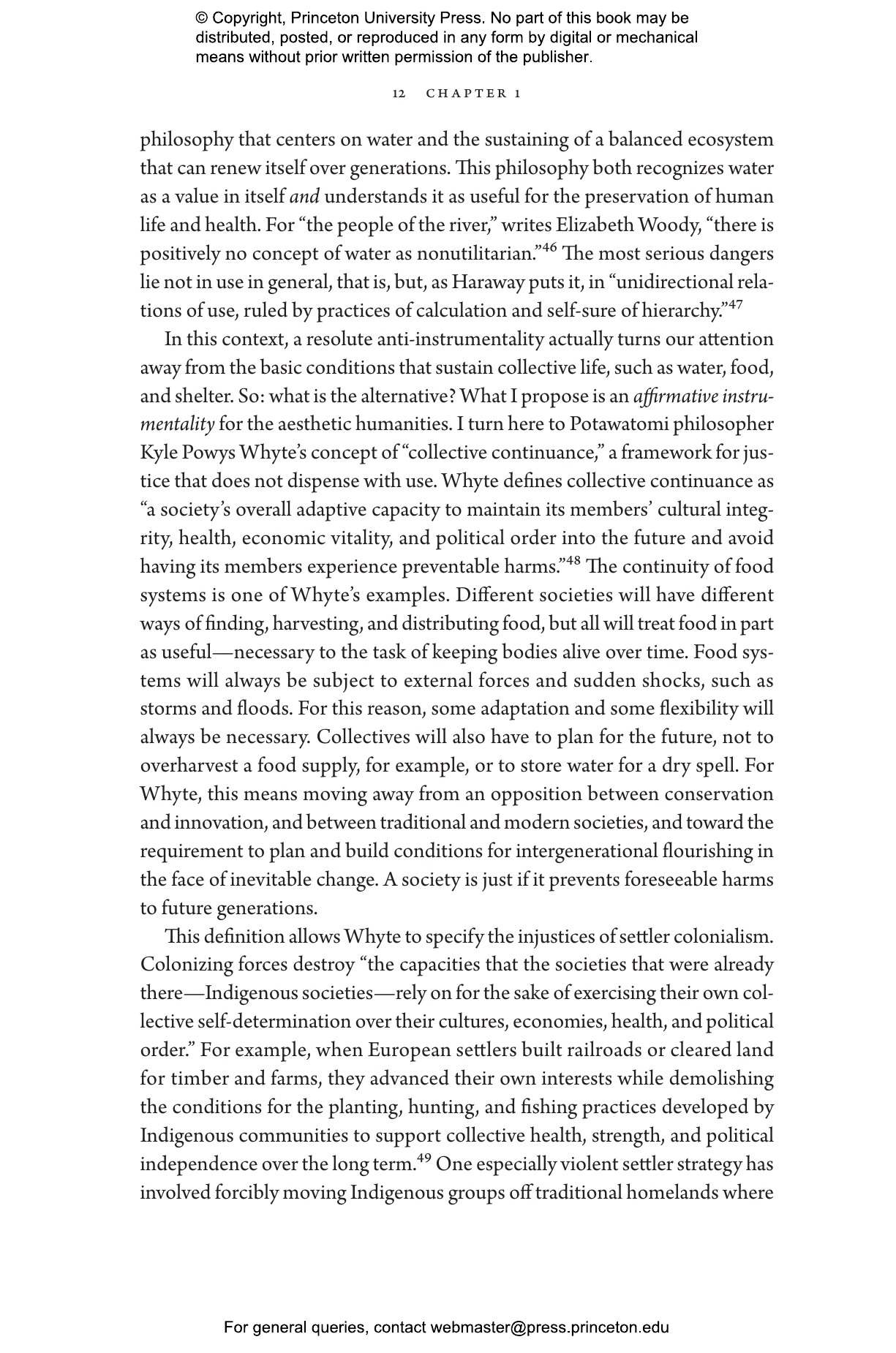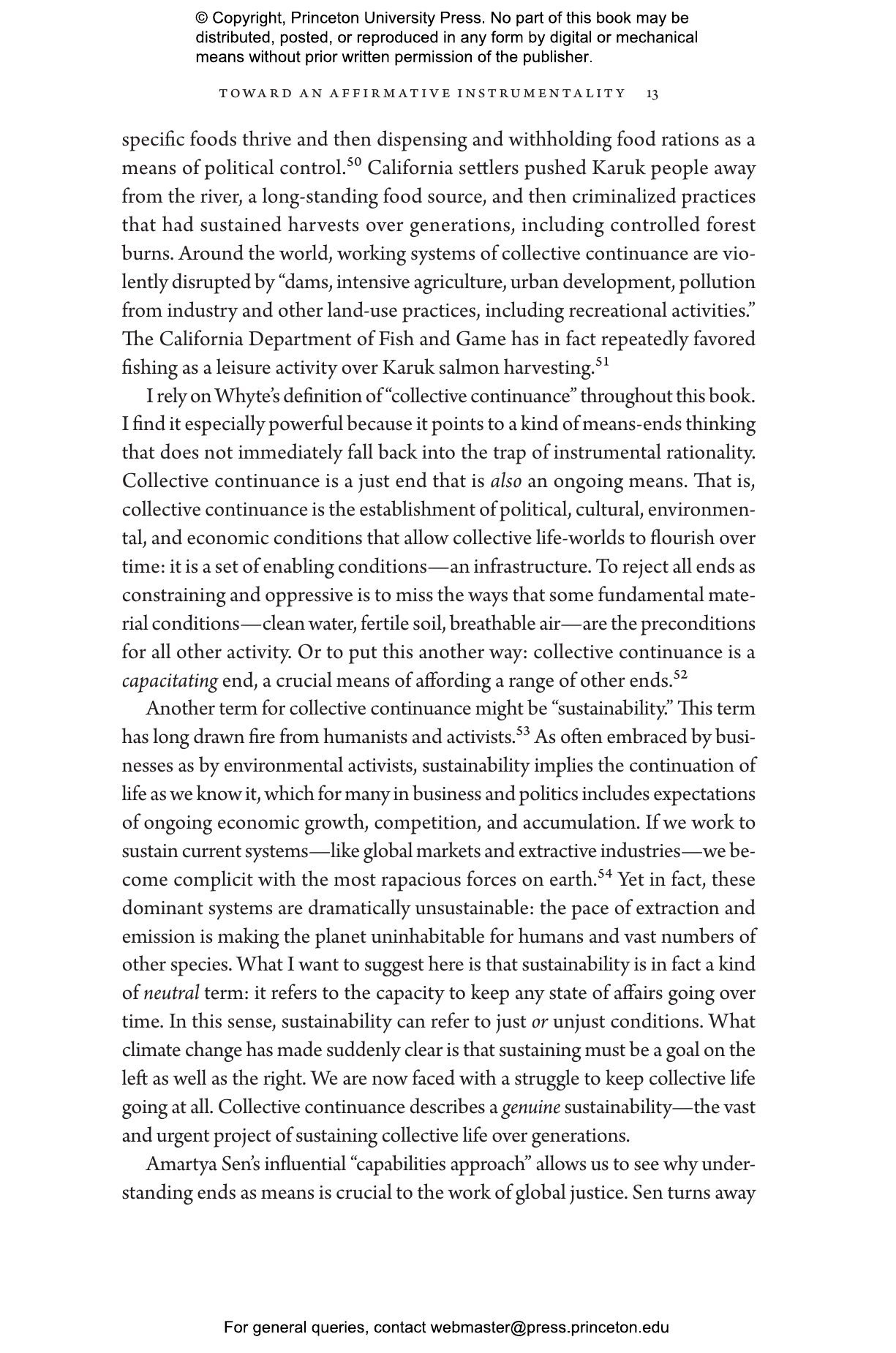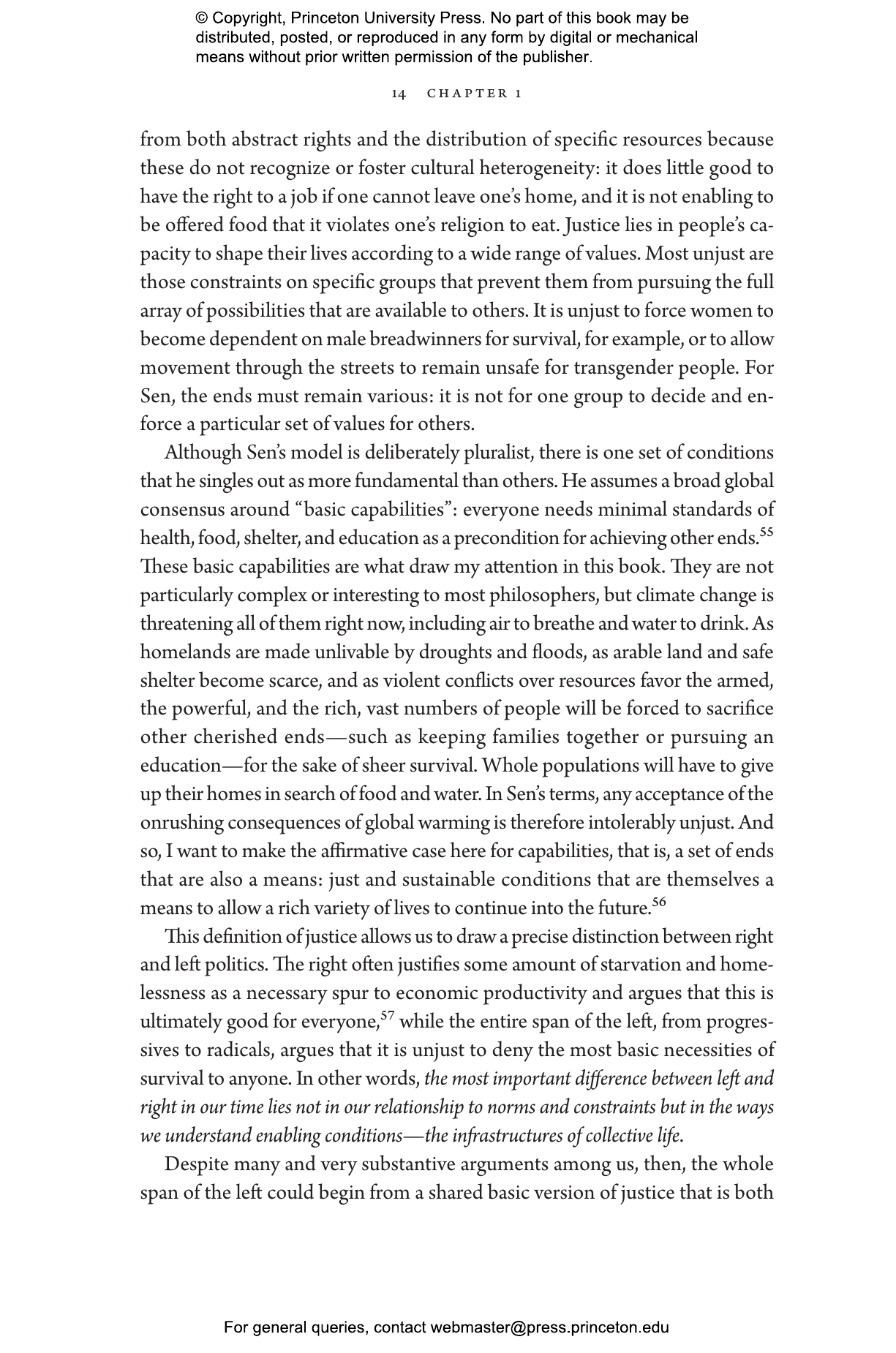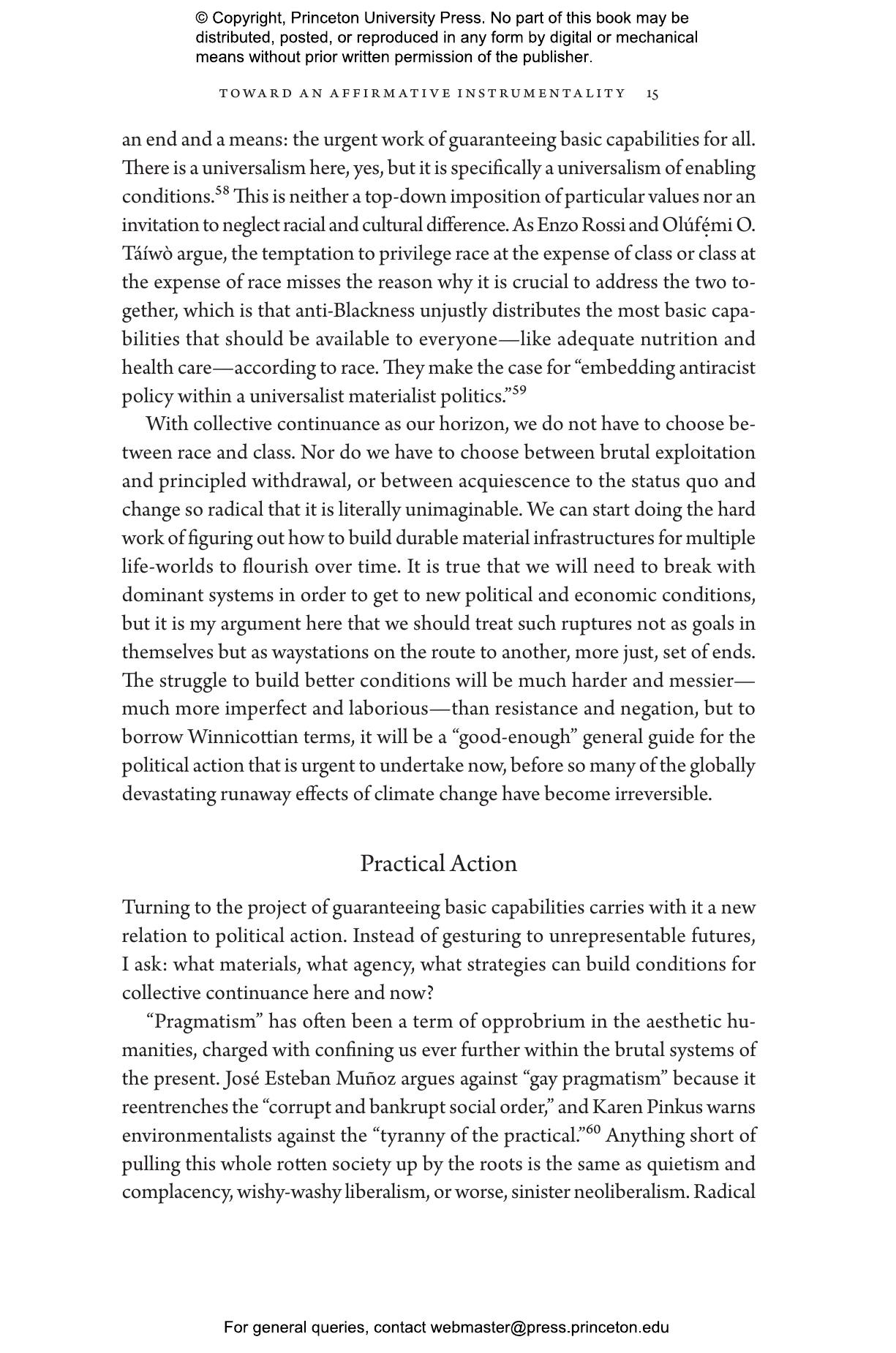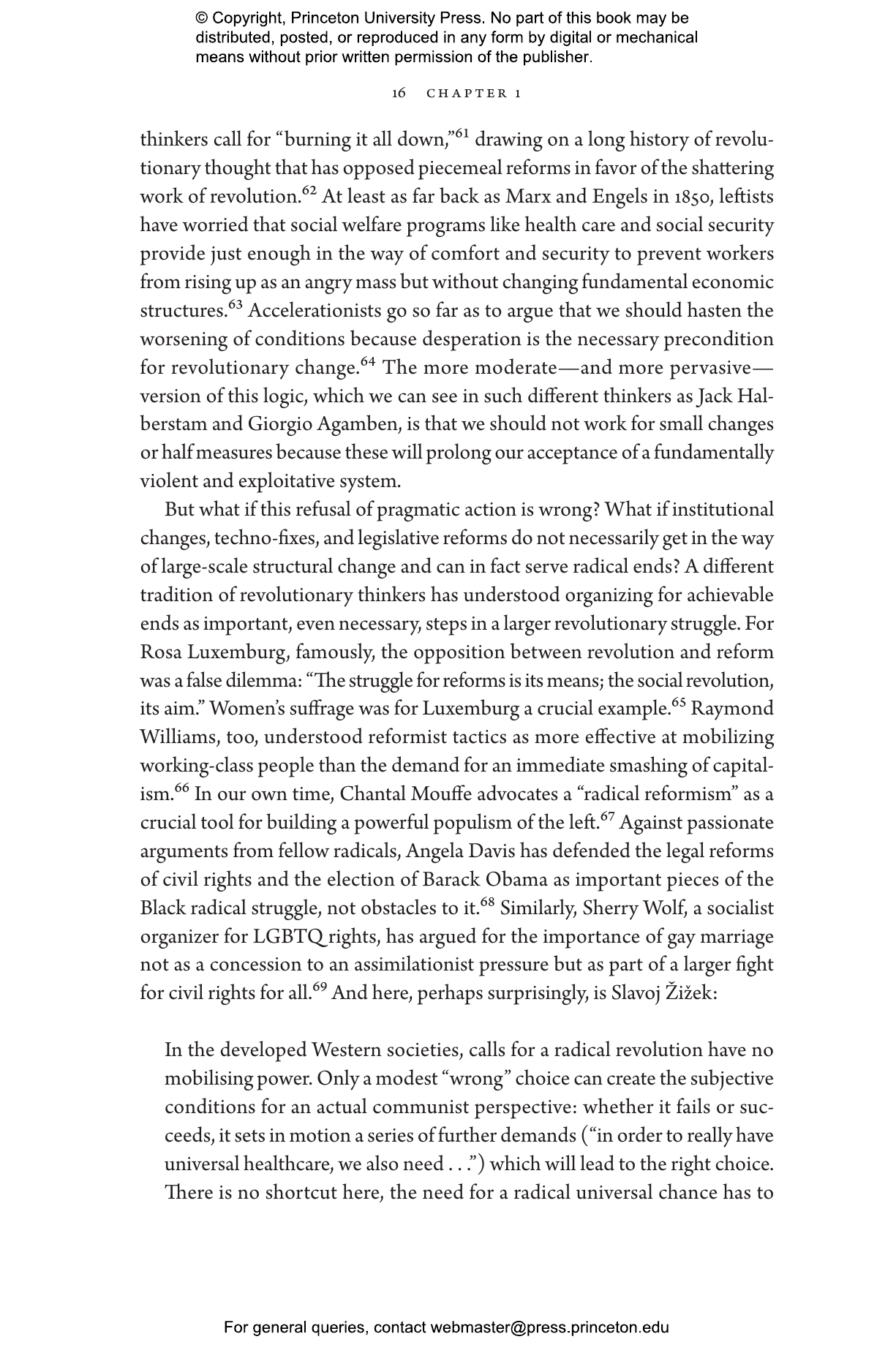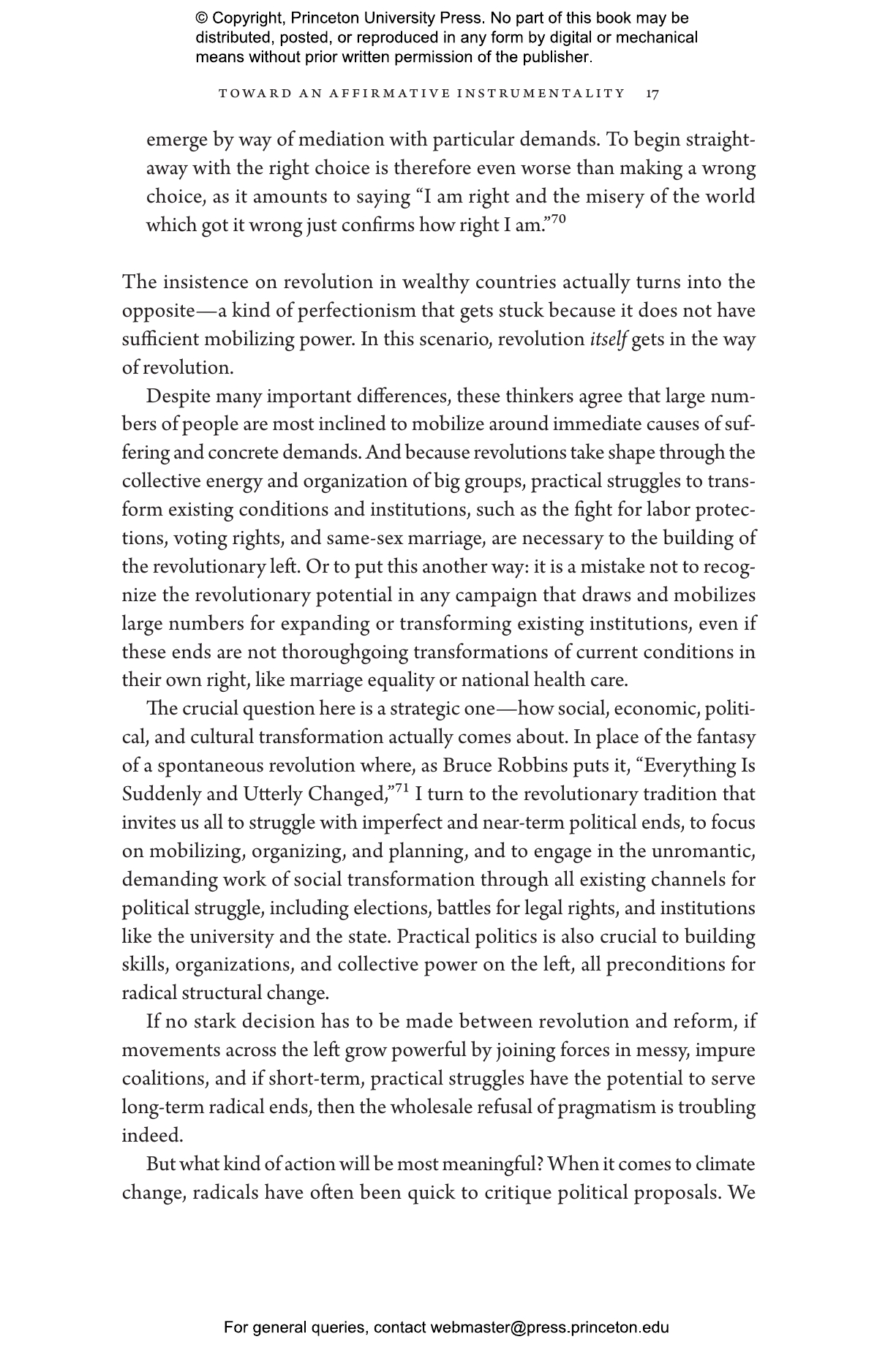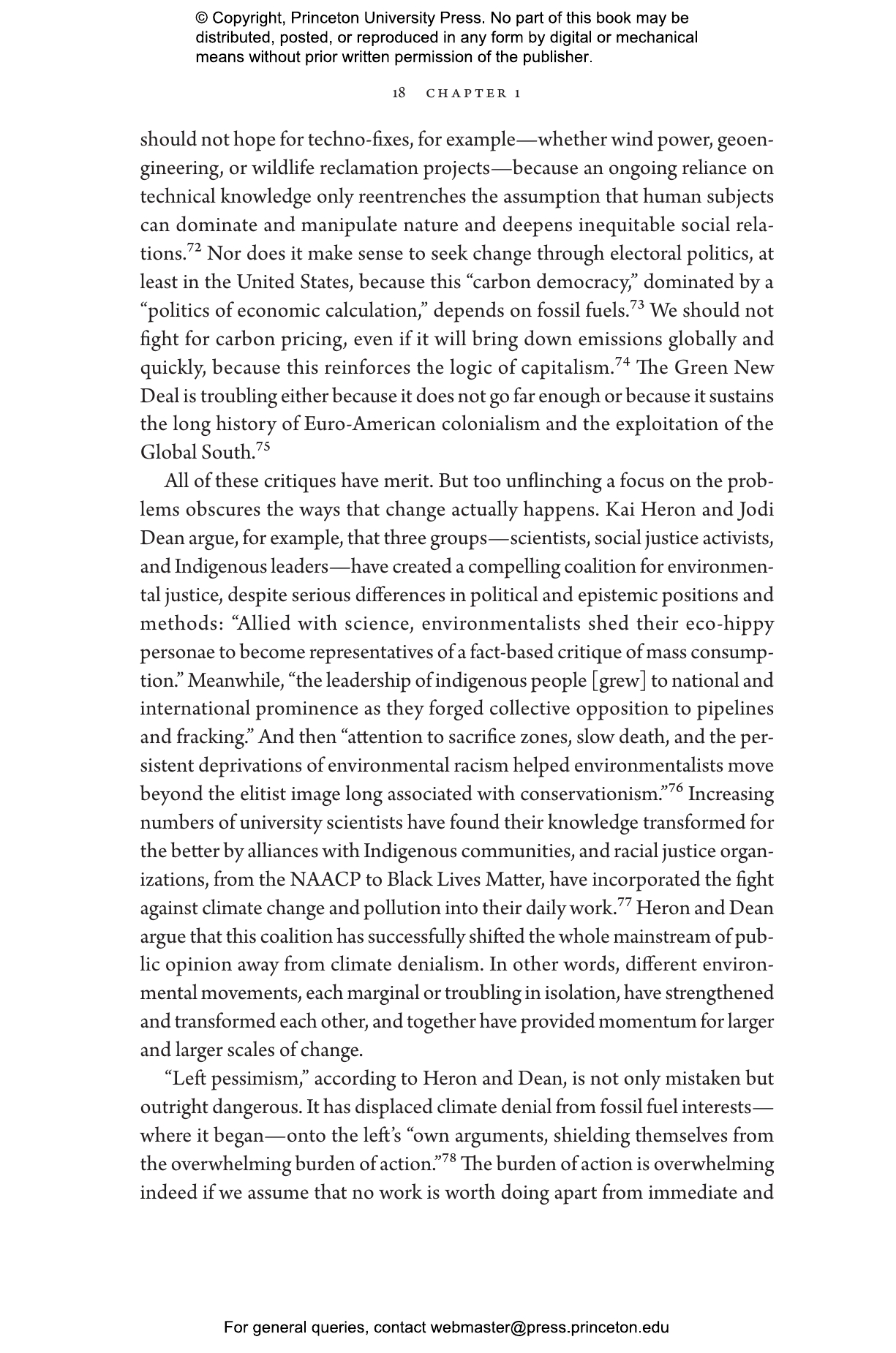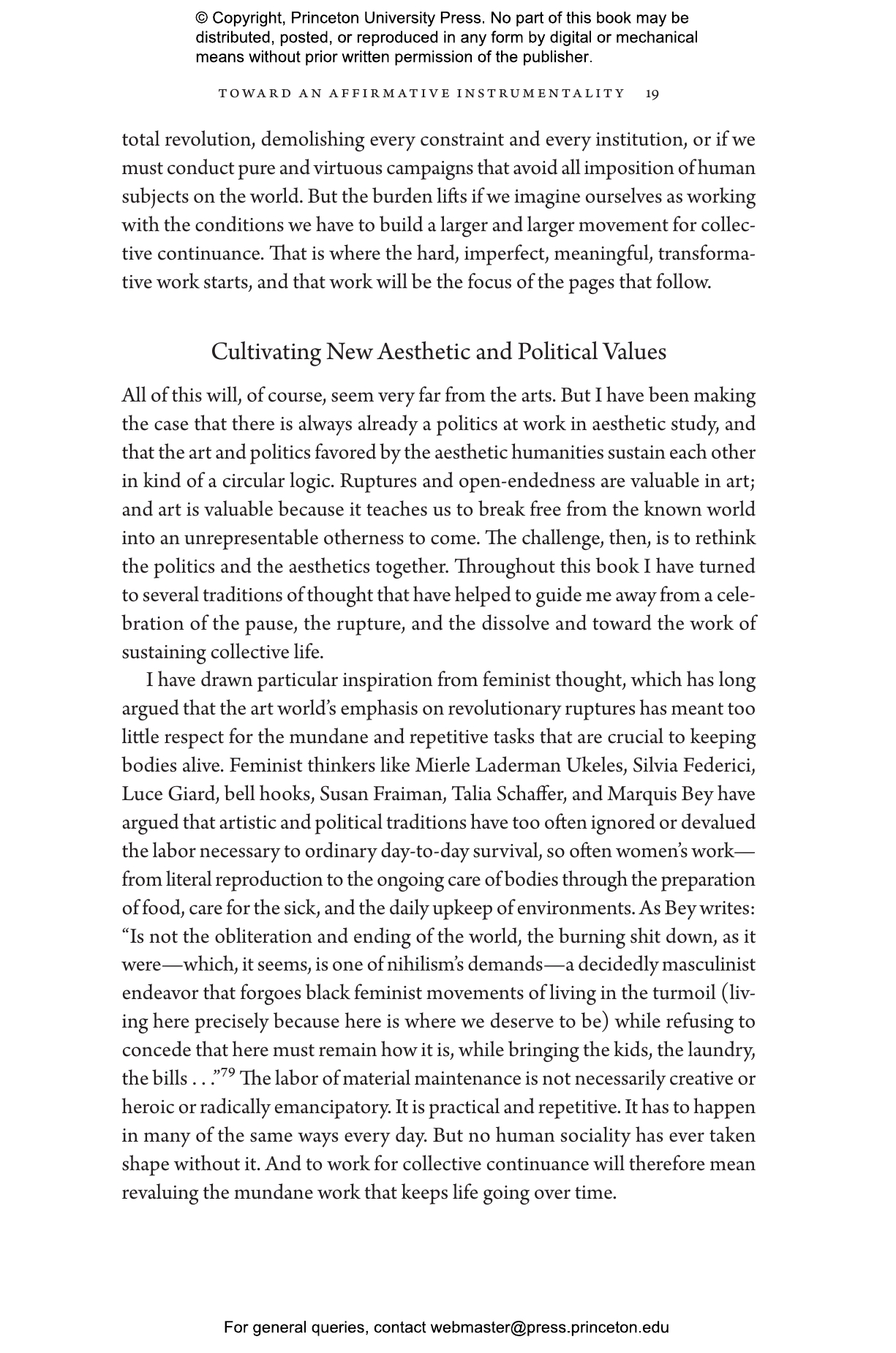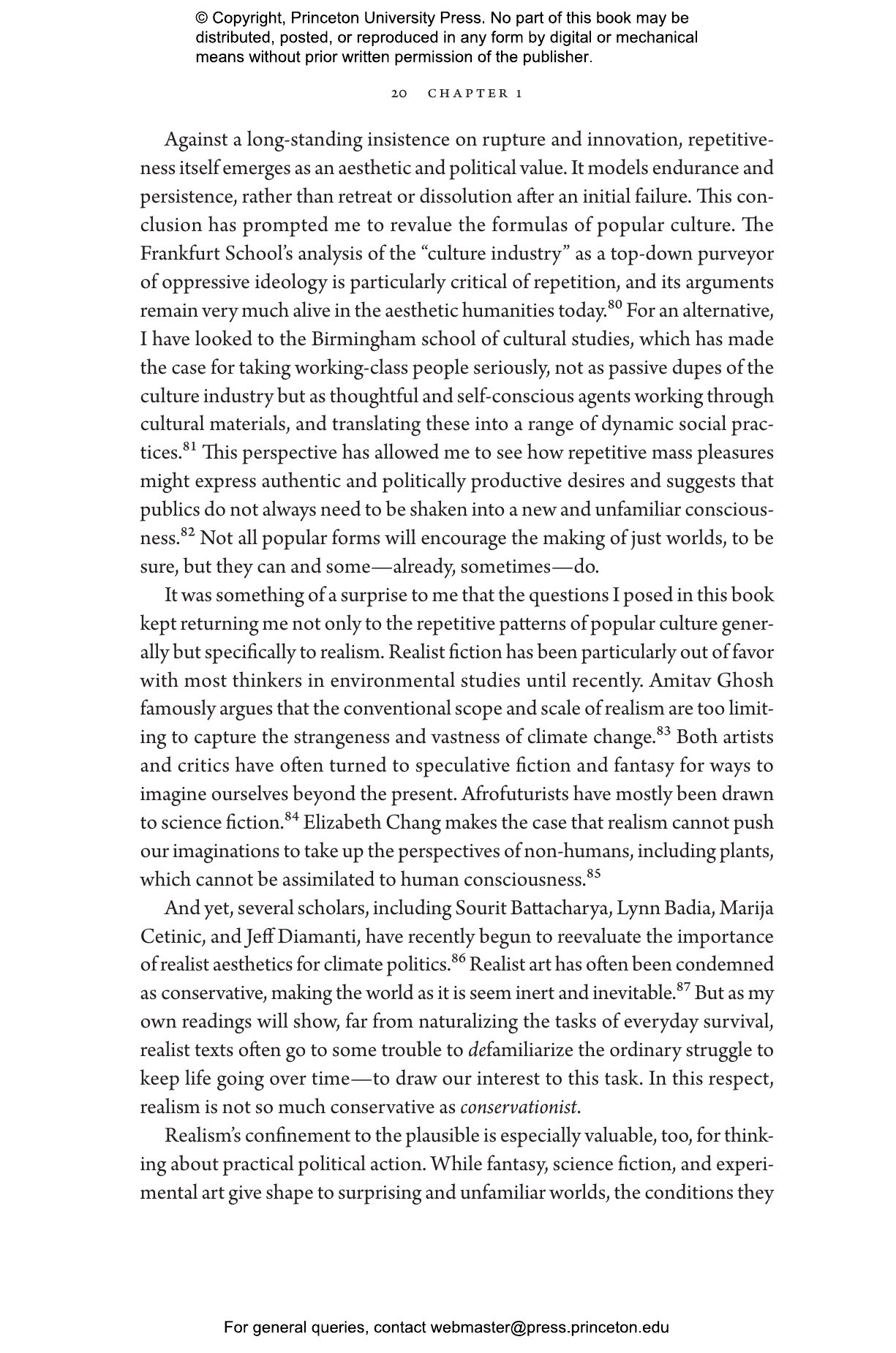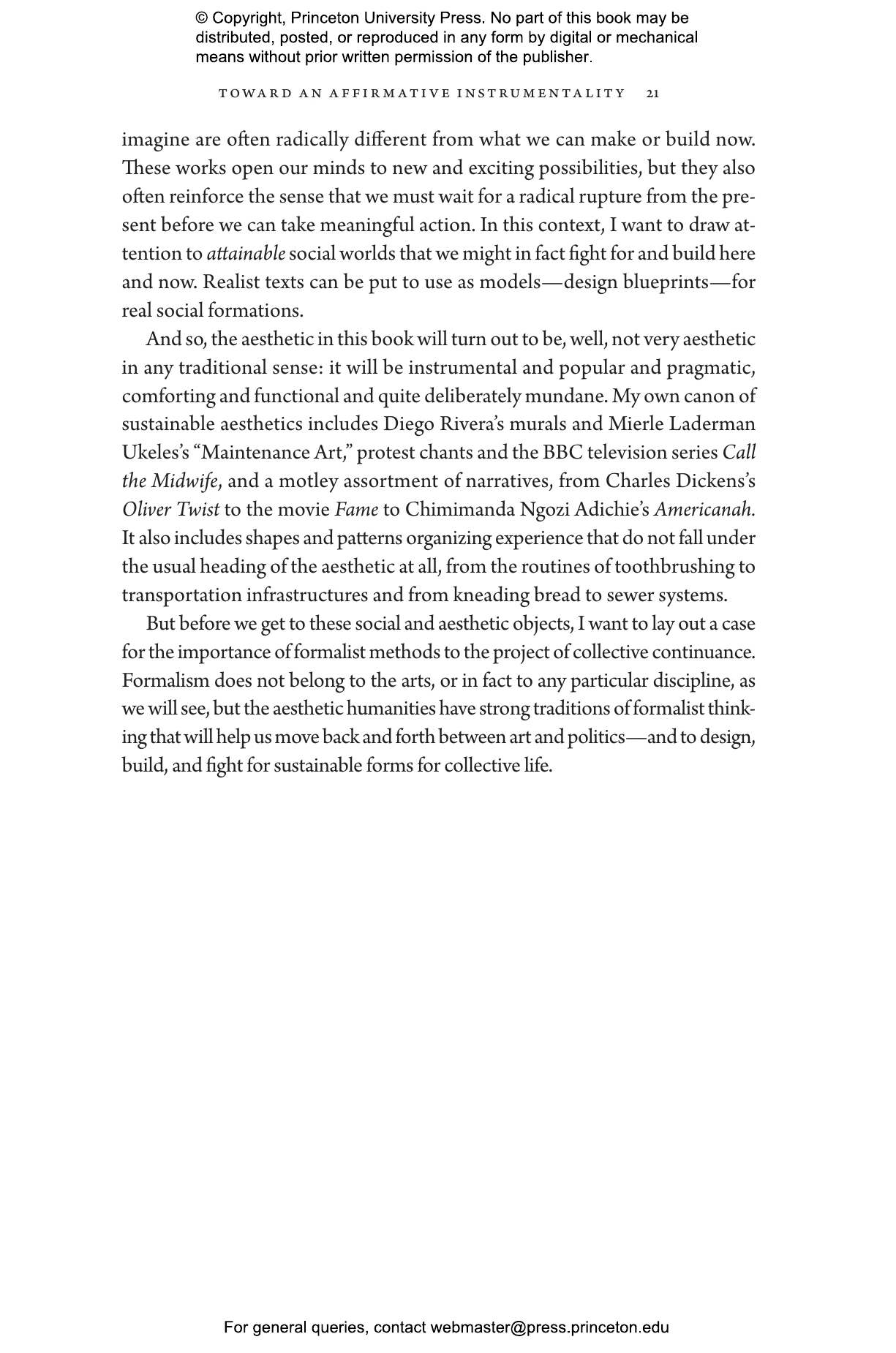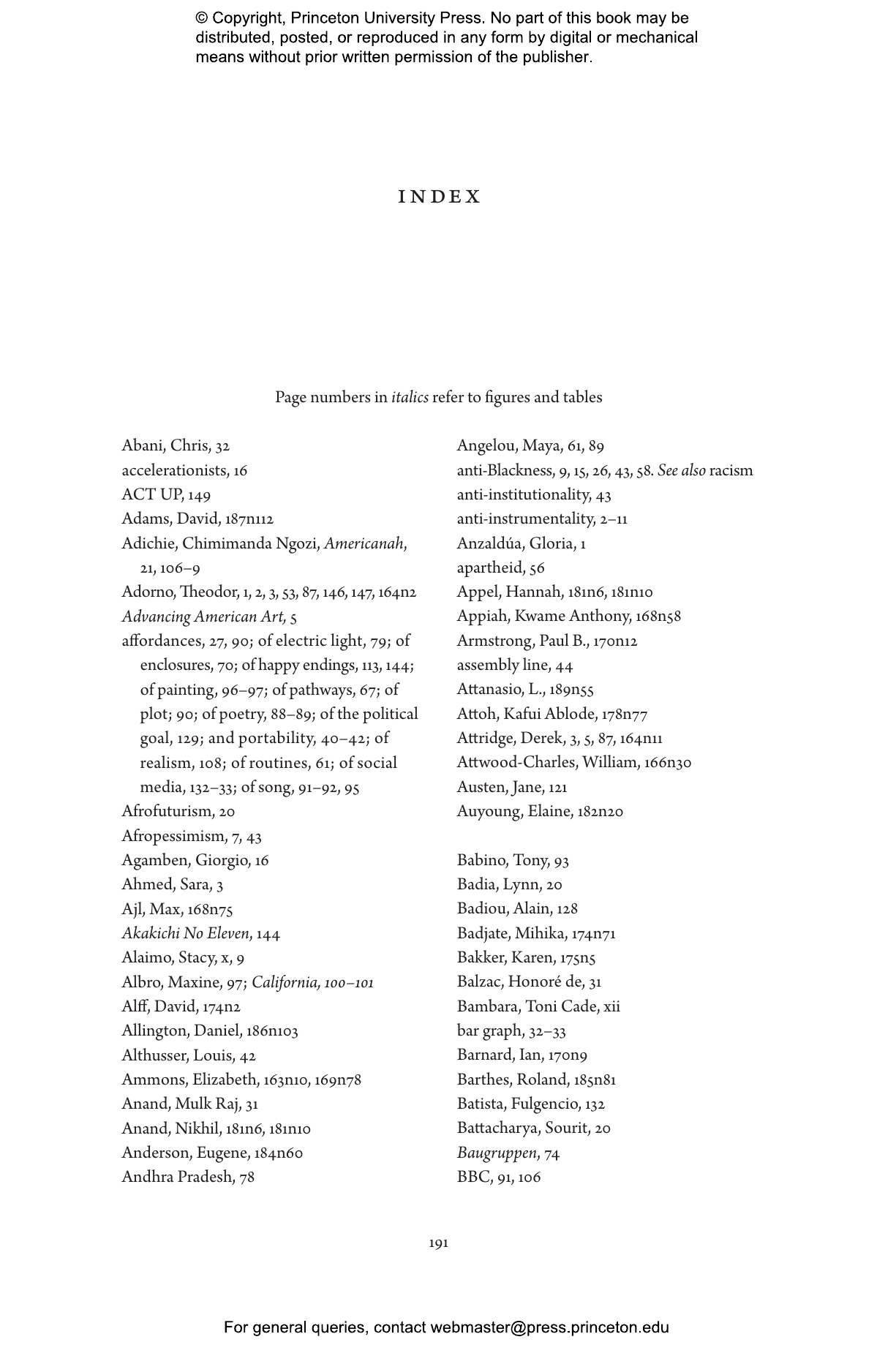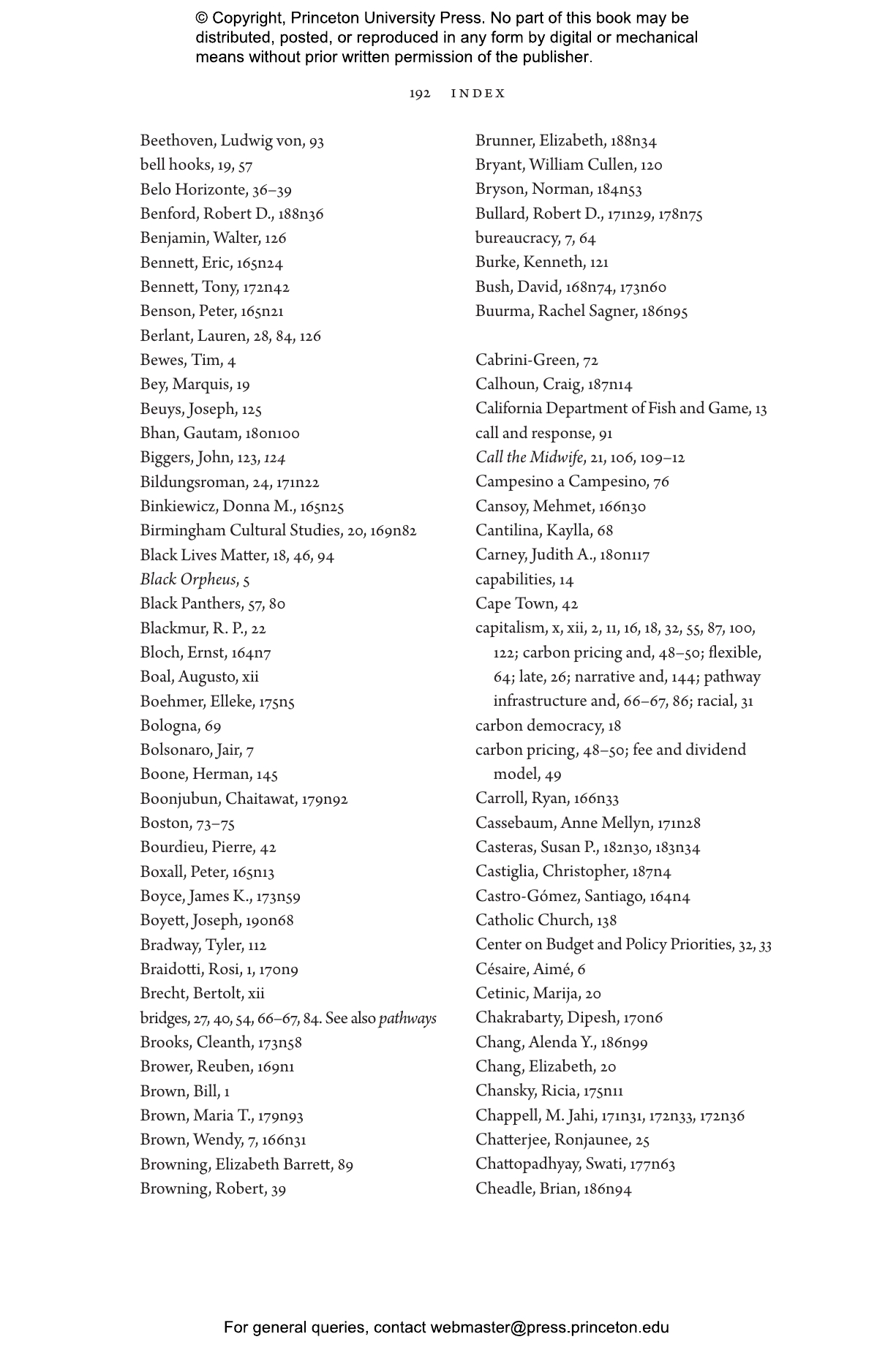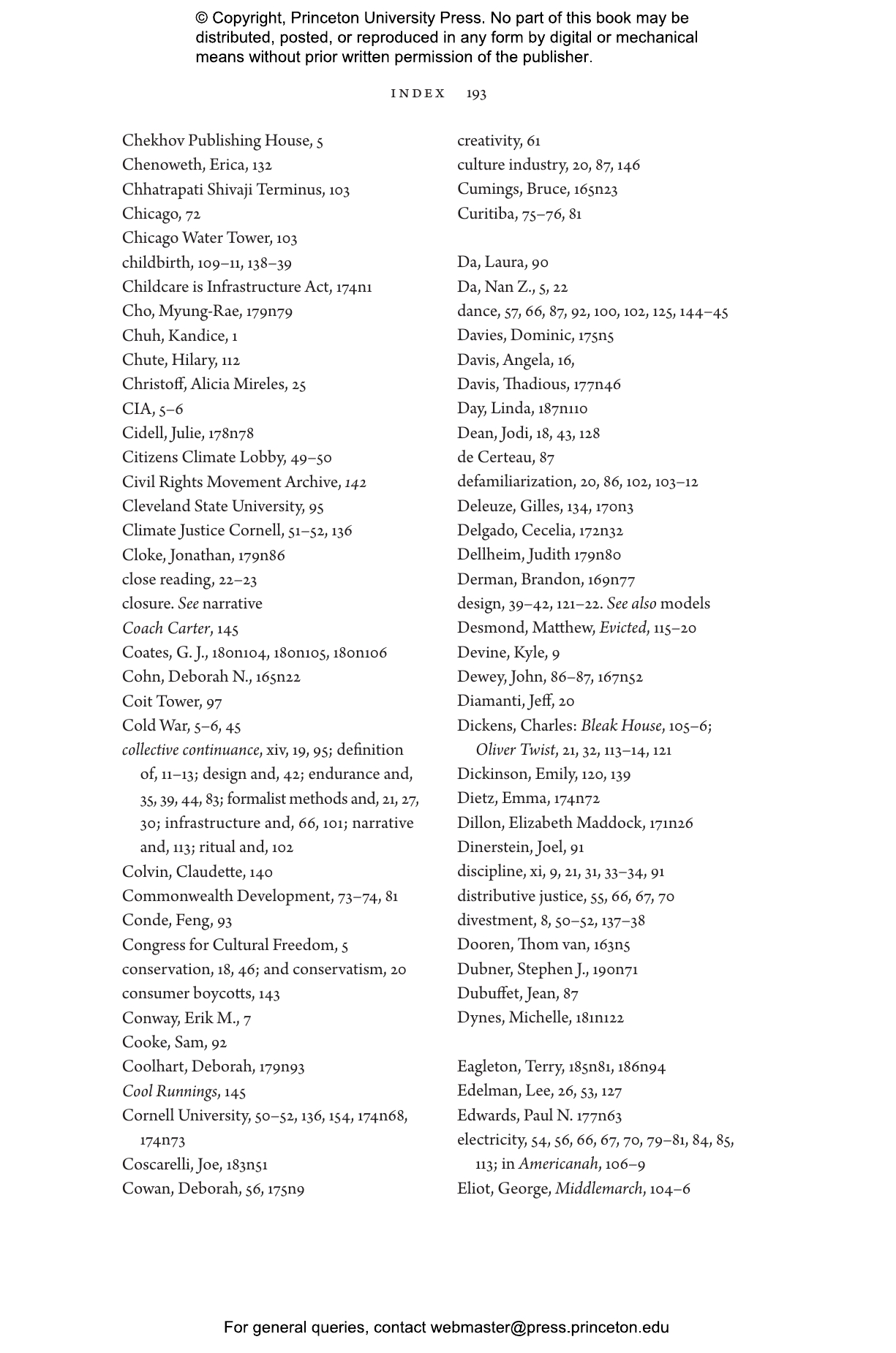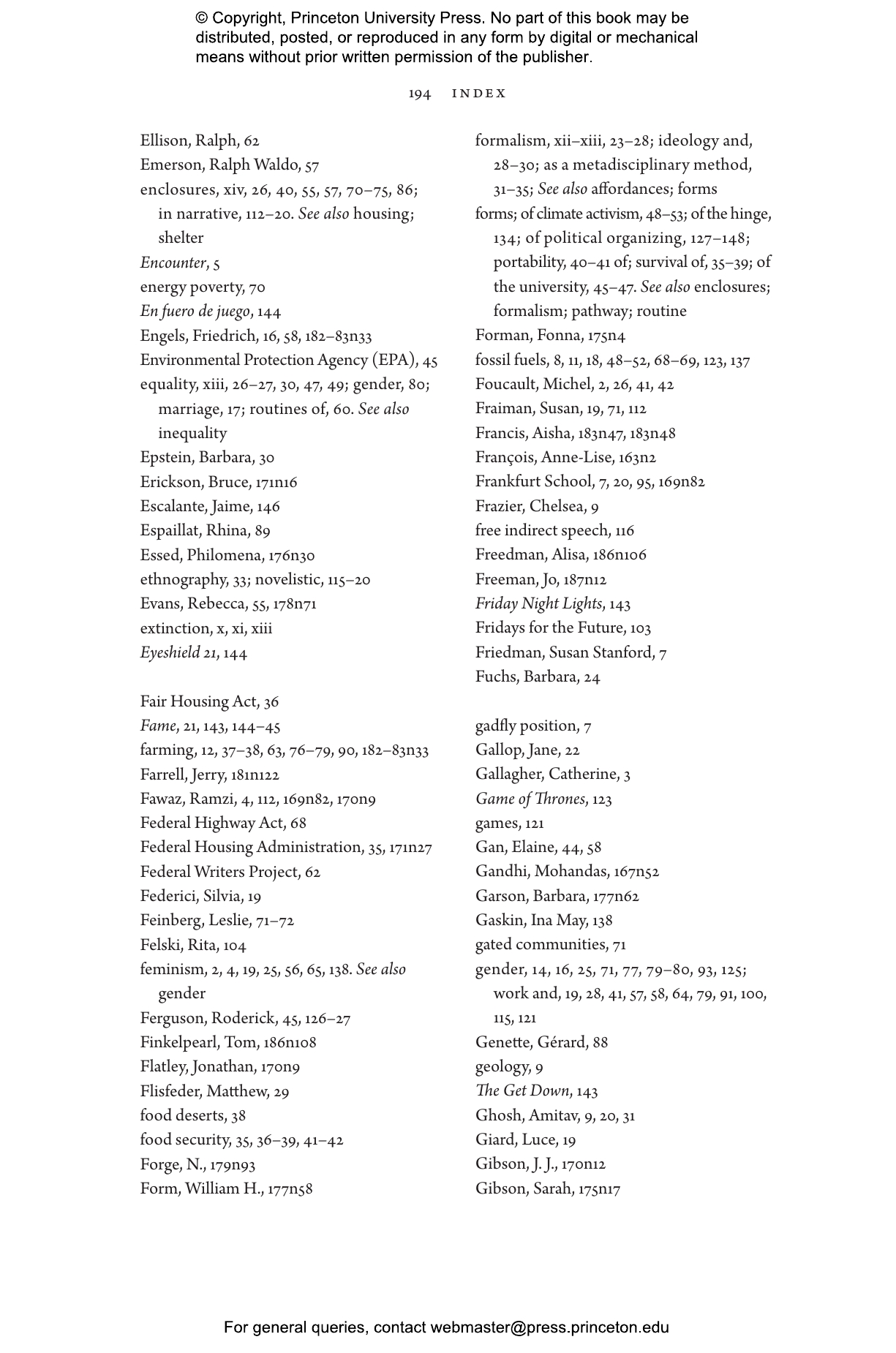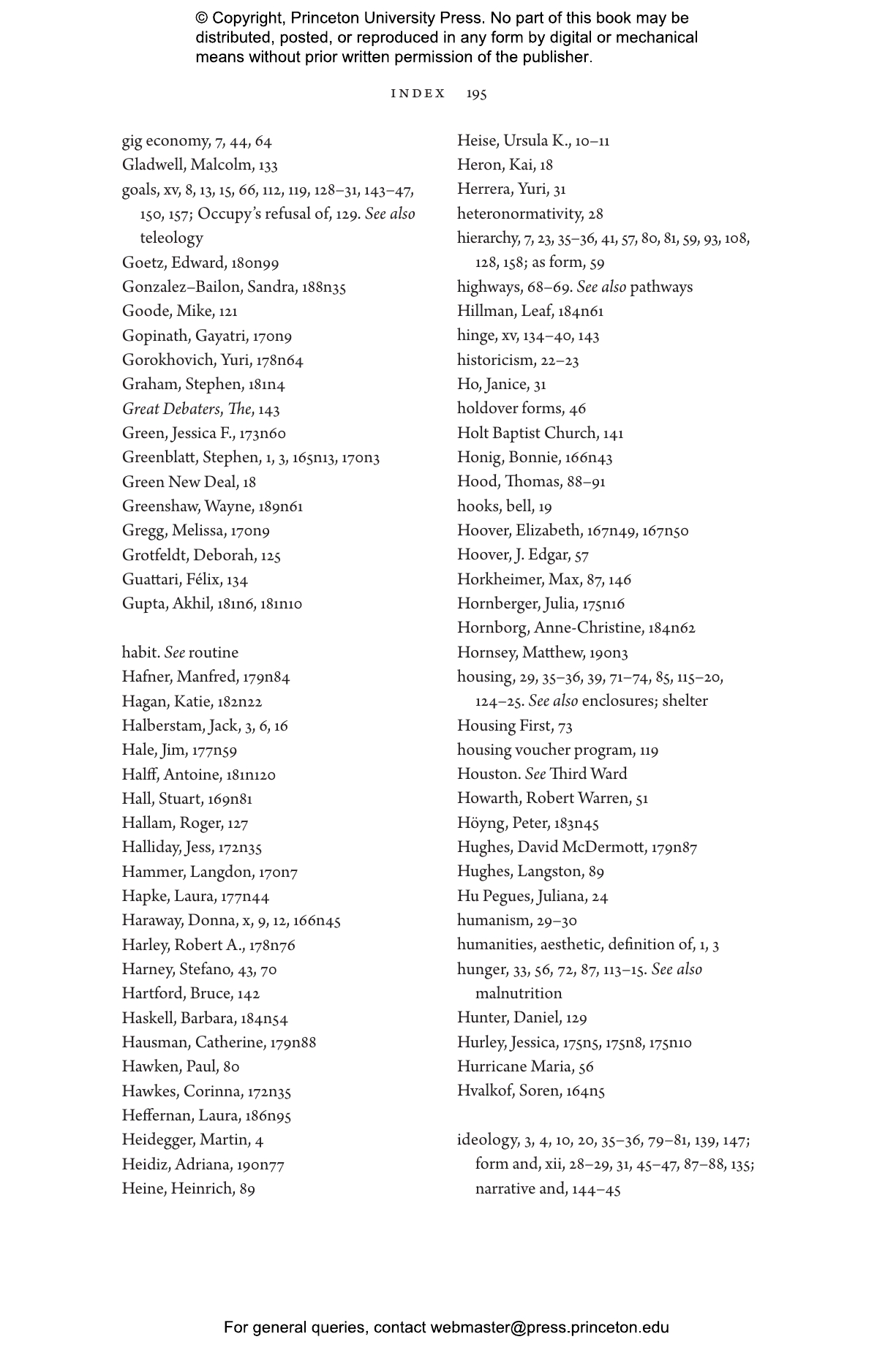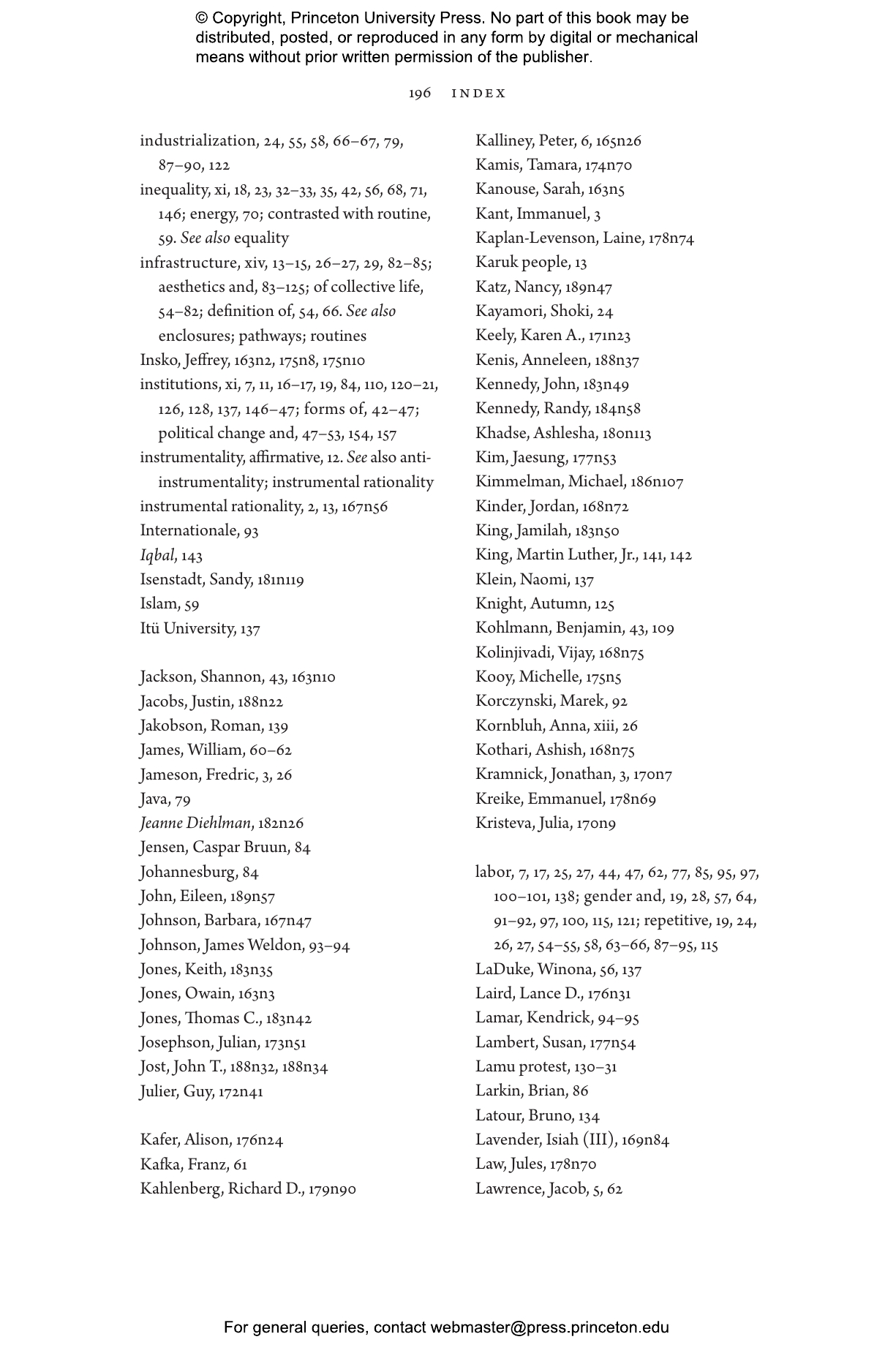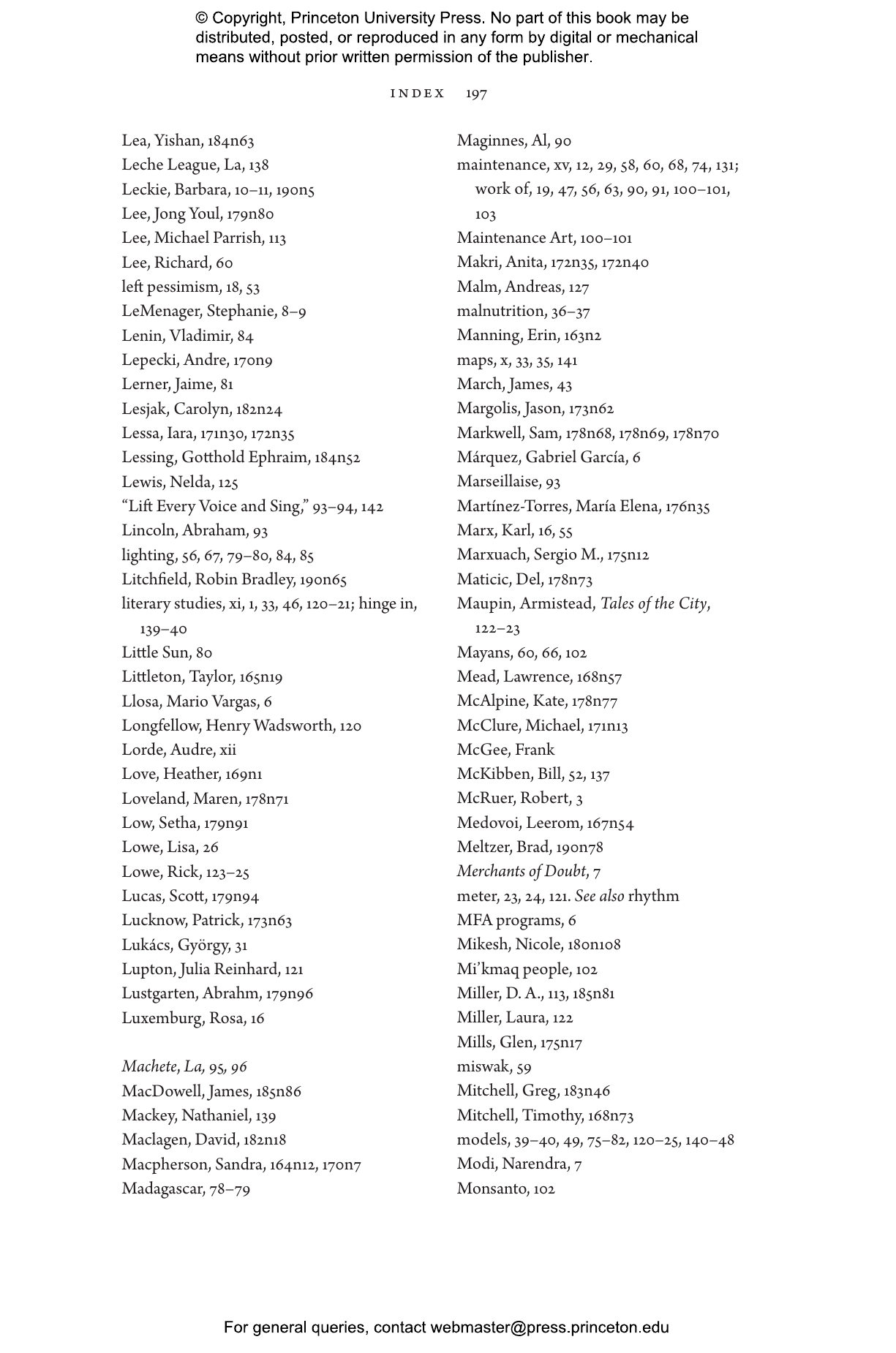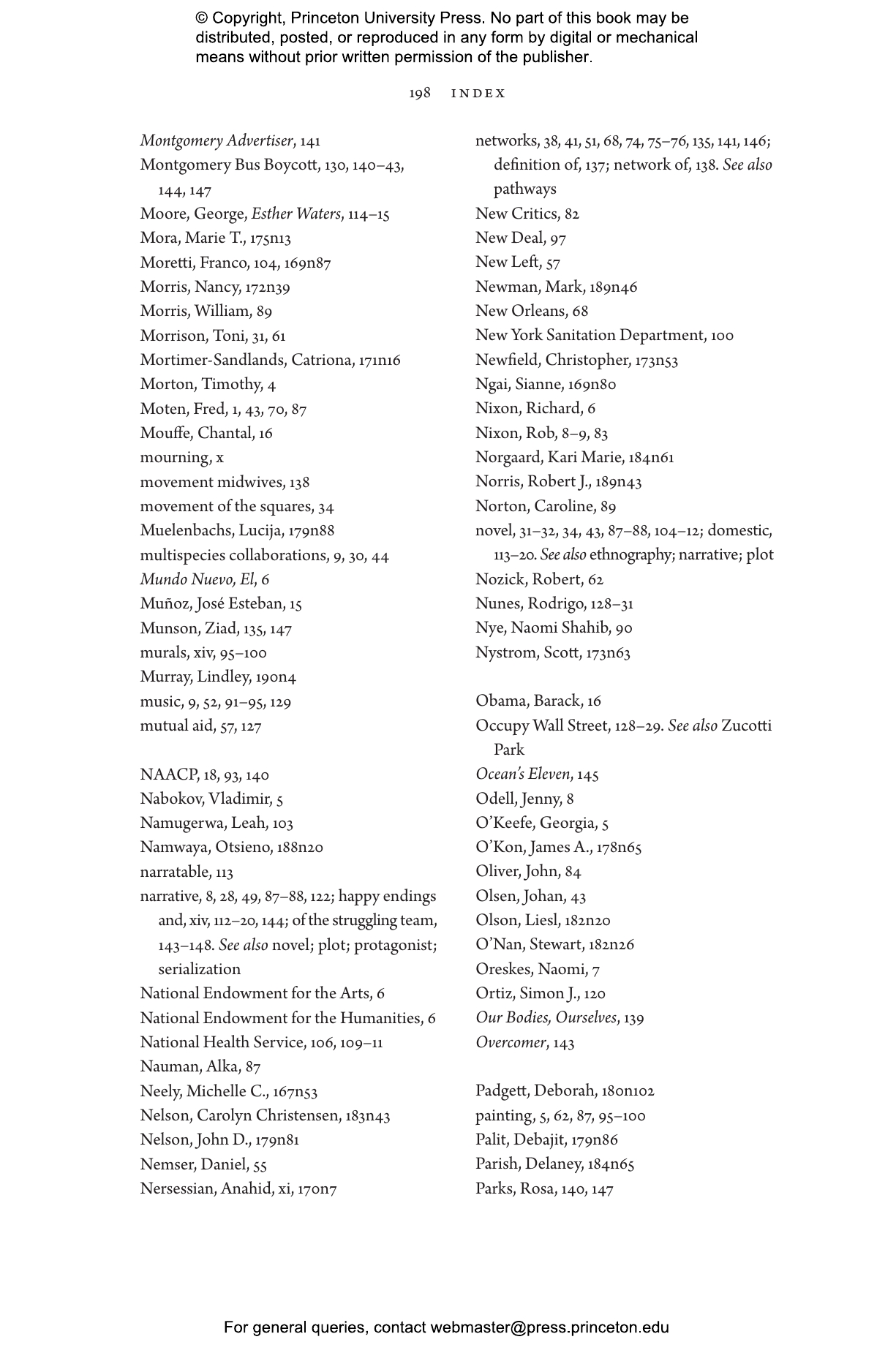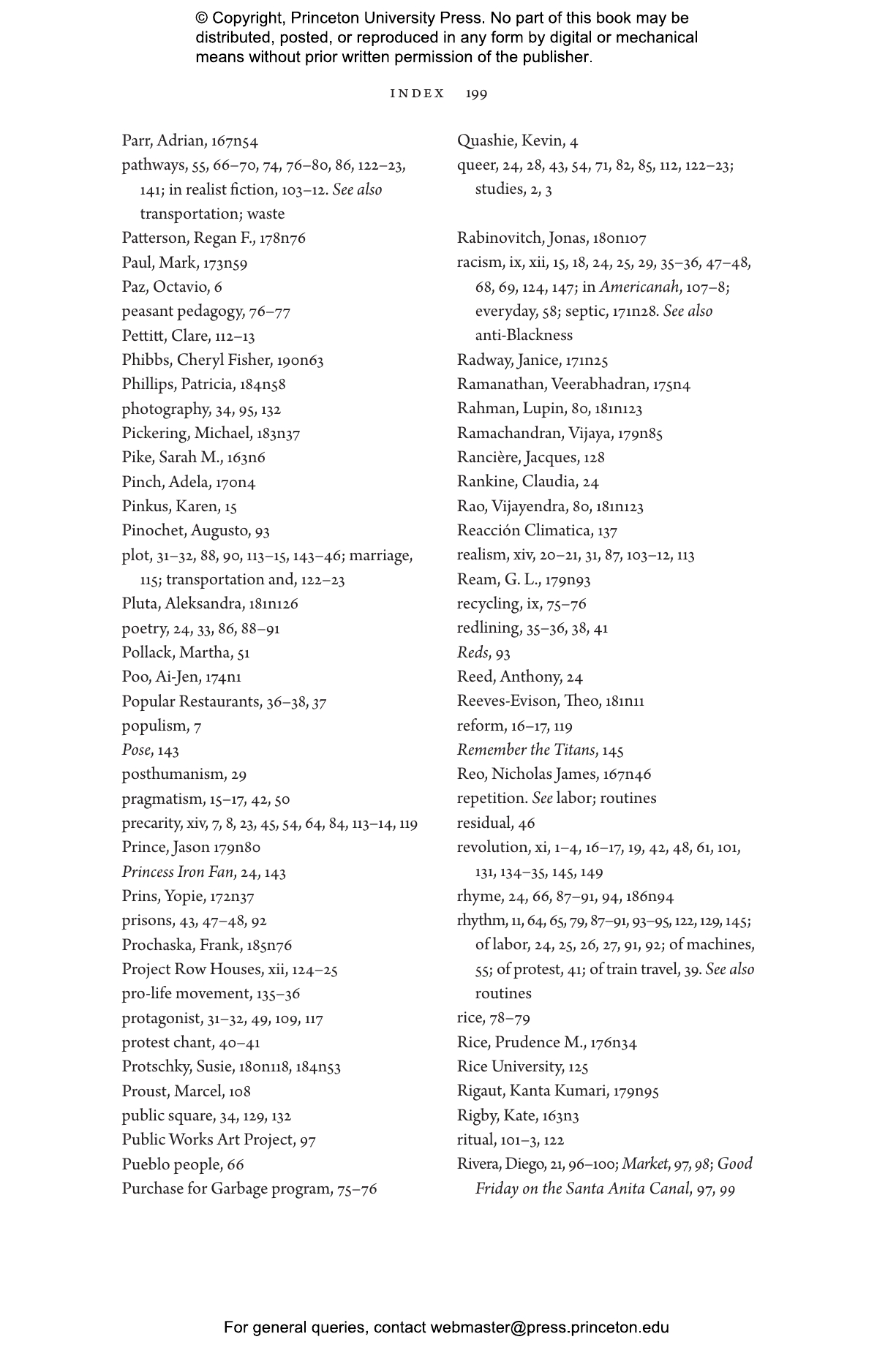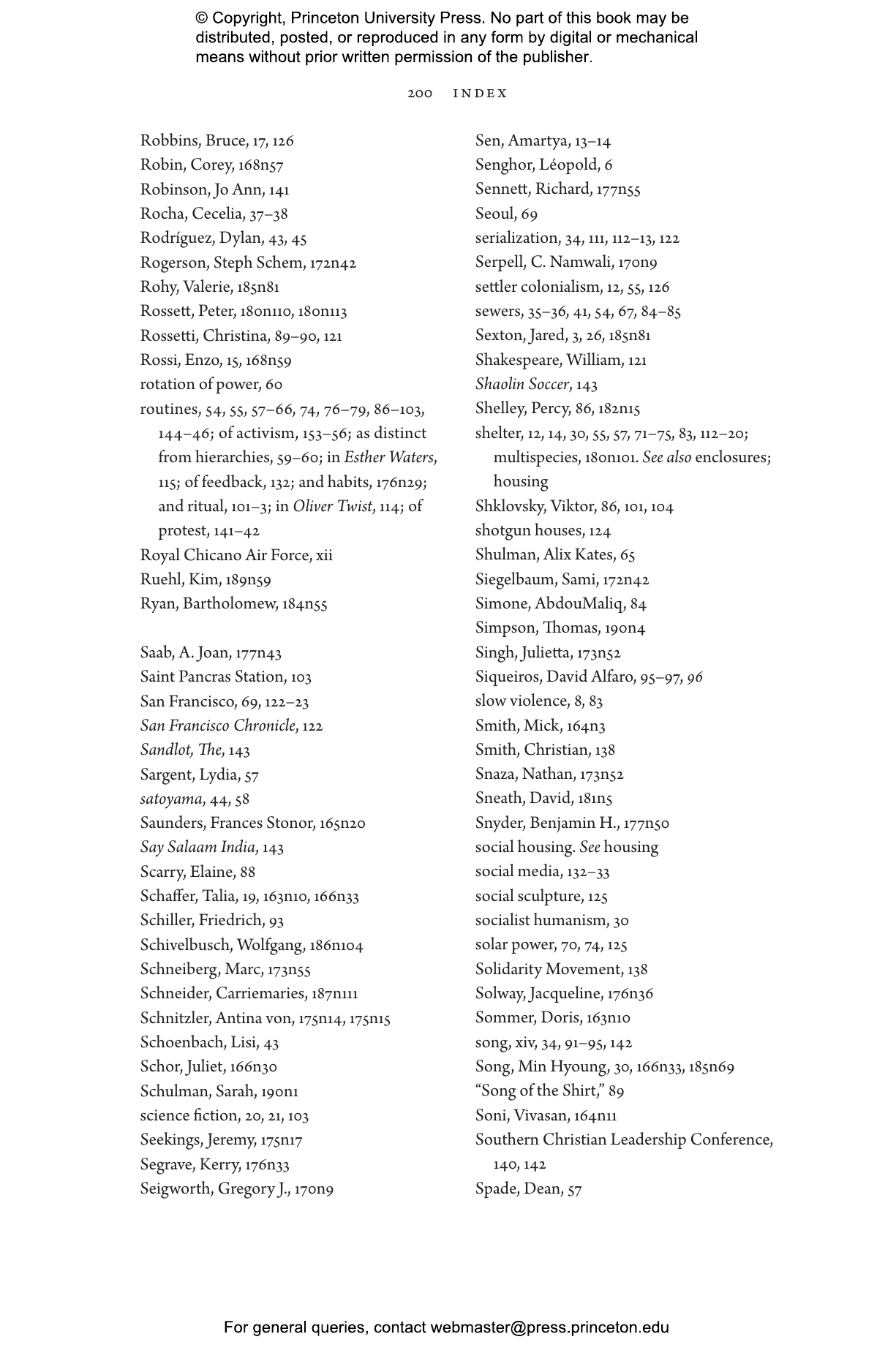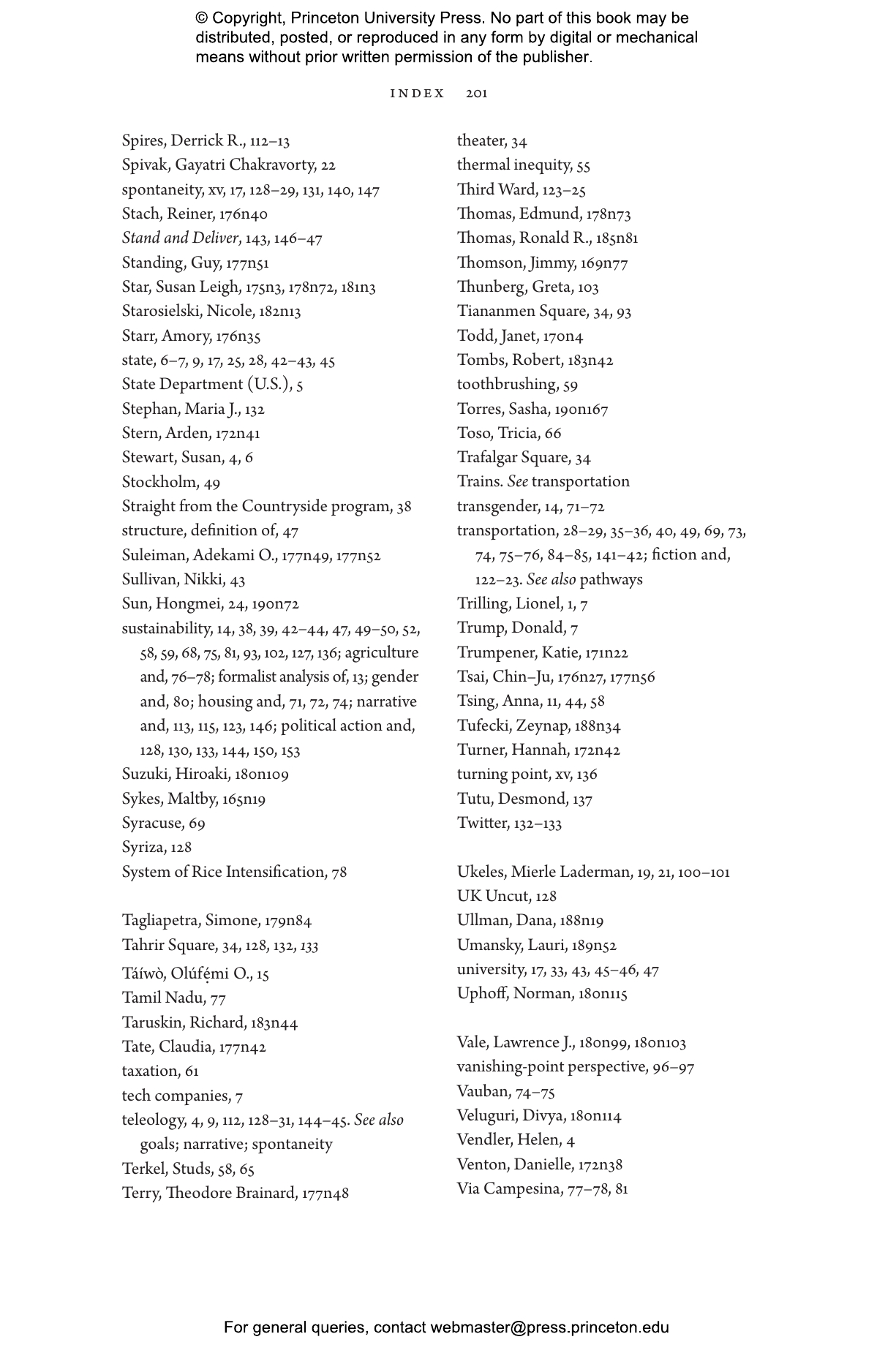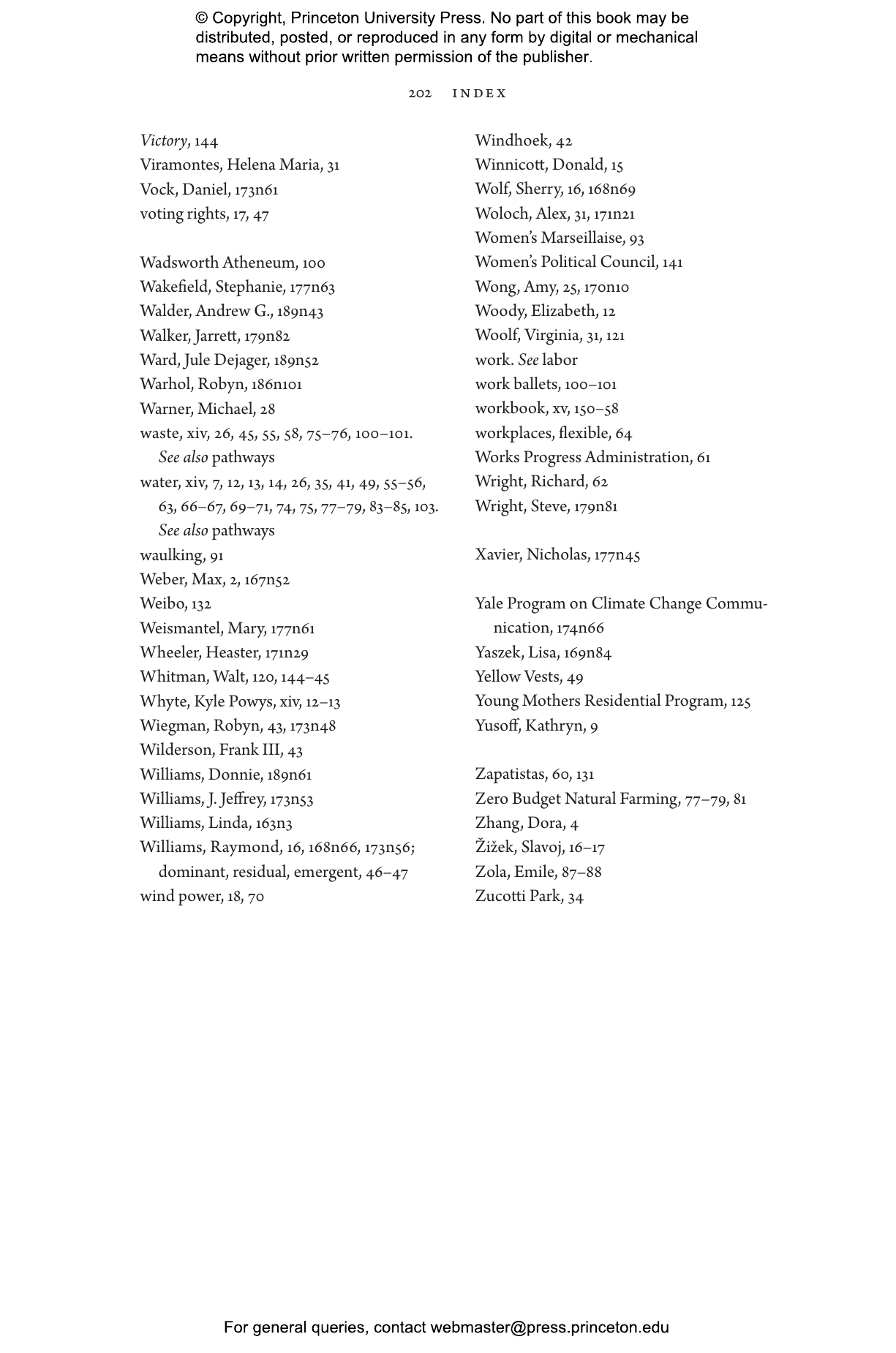As climate catastrophes intensify, why do literary and cultural studies scholars so often remain committed to the separation of aesthetic study from the nitty-gritty of political change? In this thought-provoking book, Caroline Levine makes the case for an alternative view, arguing that humanists have the tools to mobilize political power—and the responsibility to use those tools to avert the worst impacts of global warming. Building on the theory developed in her award-winning book, Forms, Levine shows how formalist methods can be used in the fight for climate justice.
Countering scholars in the environmental humanities who embrace only “modest gestures of care”—and who seem to have moved directly to “mourning” our inevitable environmental losses—Levine argues that large-scale, practical environmental activism should be integral to humanists’ work. She identifies three major infrastructural forms crucial to sustaining collective life: routines, pathways, and enclosures. Crisscrossing between art works and public works—from urban transportation to television series and from food security programs to rhyming couplets—she considers which forms might support stability and predictability in the face of growing precarity. Finally, bridging the gap between academic and practical work, Levine offers a series of questions and exercises intended to guide readers into political action. The Activist Humanist provides an essential handbook for prospective activist-scholars.
Caroline Levine is the David and Kathleen Ryan Professor of the Humanities at Cornell University. She is the author of Forms: Whole, Rhythm, Hierarchy, Network, winner of the James Russell Lowell Prize from the Modern Language Association (Princeton); Provoking Democracy: Why We Need the Arts; and The Serious Pleasures of Suspense.
"Levine’s call to bring humanistic tools into the world and into affirmative political projects is timely and invigorating. Our theories of change need to be rigorously debated more than they need to be defended and affirmed. Levine’s book offers several constructive steps to this end, and will hopefully inspire many more."—Anne Pasek, H-Net Reviews
"Countering anti-instrumentalism licenses Levine to offer compelling close readingsof diverse cultural texts which affirm that not all forms and structures are bad."—Adam Hansen, Modern Language Review
“To change everything we need everybody—and that includes people who think they're not well-suited for political engagement. This book is a reminder that we all need to be citizens, that humanists can bring particular gifts, and that the time to start is now!”—Bill McKibben, author of The End of Nature
“Fascists ban books, while academic humanists merely stigmatize useful concepts. In this brilliant manual for practical change, Caroline Levine clears the cobwebs of critique from our addled minds. Here, at last, is an argument for climate action and a just, well-managed, sustainable world that recognizes leftist pessimism as a key barrier to its realization. Levine’s book deserves a wide readership and a merit badge for courage.”—Gillen D’Arcy Wood, author of Land of Wondrous Cold
“This book cannot be published quickly enough. The Activist Humanist is a humanities ‘how to’ book for the climate crisis; it is at once practical, thought-jolting, and inspiring and will no doubt enjoy a wide readership.”—Barbara Leckie, Carleton University
“Provocative, engaging, and compelling. Levine has produced a sharp and timely book, one well-suited to our current moment. It taps in powerfully to what I think is prevailing mood among a great many literary scholars who are grappling with some of the questions the book strives to answer: of what value is our work in the face of planetary emergency? what can we do? what should we do?”—Jeffrey Insko, Oakland University
